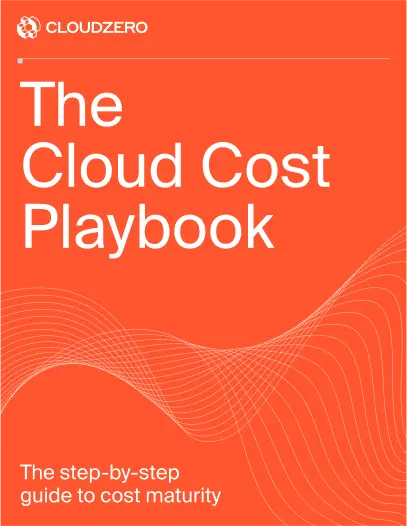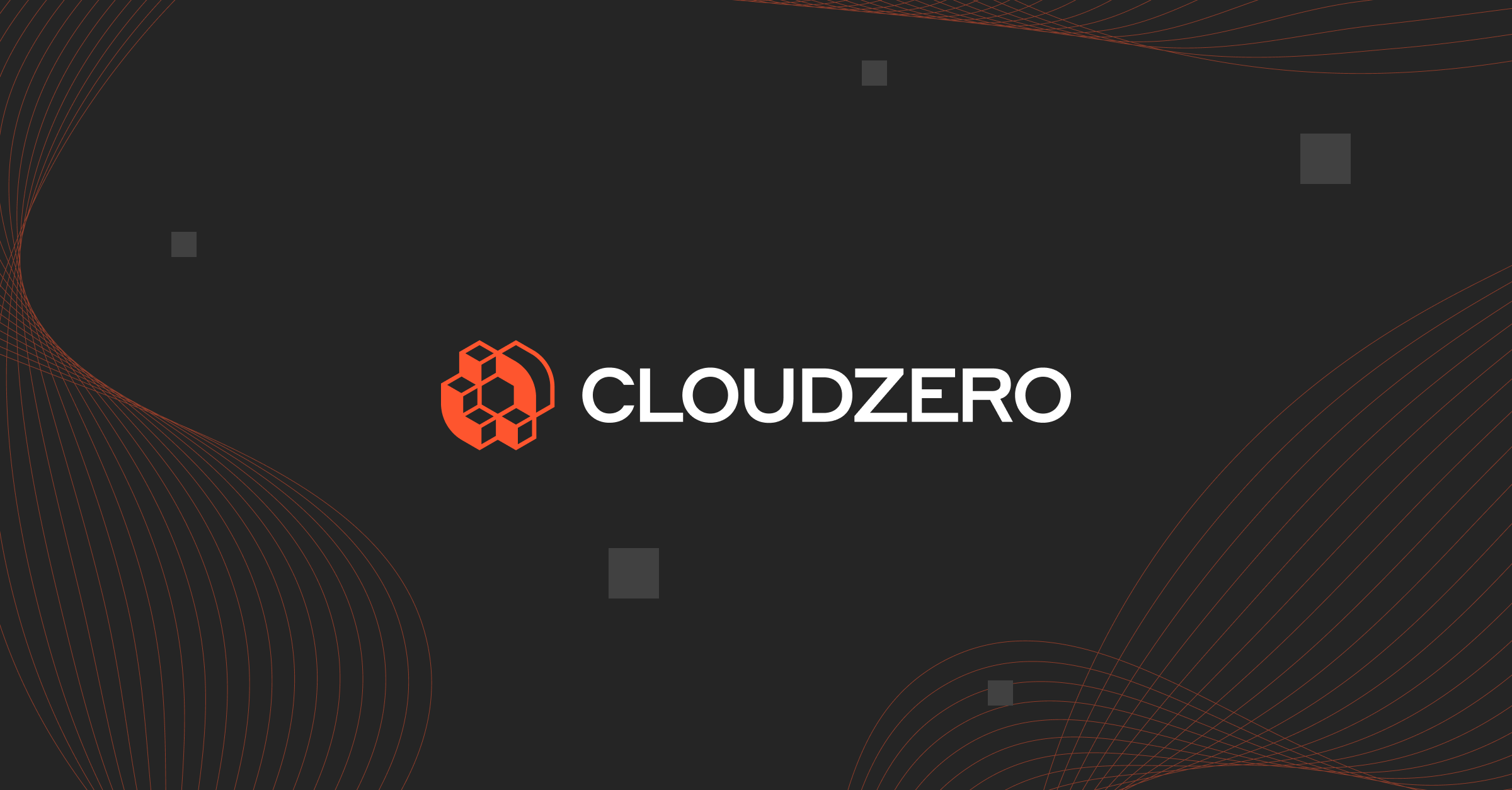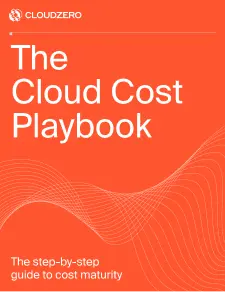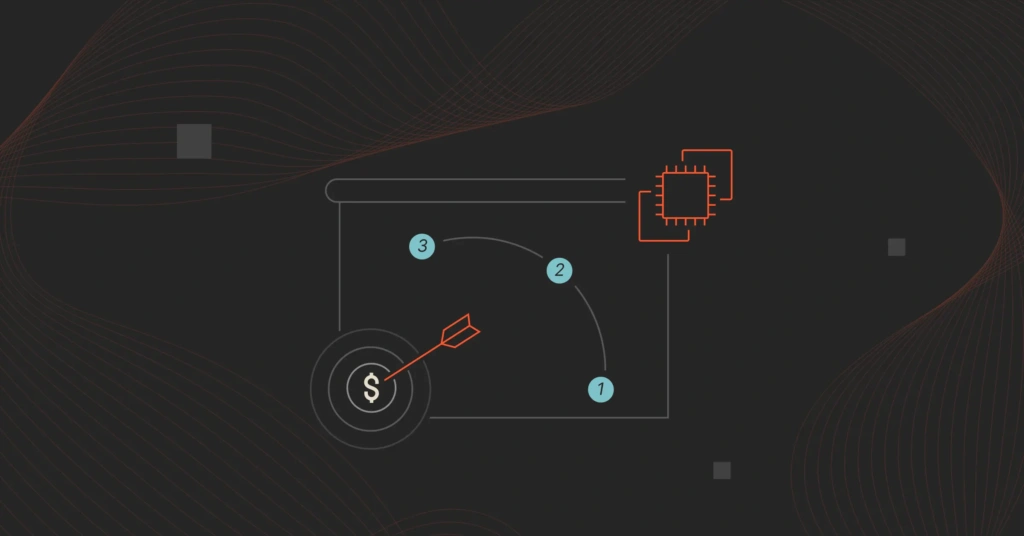Picture this. Gartner forecasts worldwide end-user spending for public cloud usage to ramp up to nearly $600 billion in 2023 — from $491 billion in 2022. Out of that spend, SaaS will make up a chunky $200 billion. For comparison, Infrastructure-as-a-Service (IaaS) and Platform-as-a-Service (PaaS) will make up $150 billion and $139 billion, respectively.
Elsewhere, a 2023 Productivity survey found that the average company uses about 315 SaaS applications. This is an increase from 254 SaaS tools in 2021. So, Software-as-a-Service (SaaS) is a very popular way to consume technology — by end users and businesses alike.
Now let’s rewind a little. How does a SaaS application work? And what does a SaaS company do? We’ll also cover:
What Is A SaaS Company?
A Software-as-a-Service provider develops, hosts, and maintains a software product and makes it available to others over the Internet. Generally, SaaS users don’t purchase the service outright. Instead, they pay a monthly or annual fee known as a subscription.
This minimizes the need for the user to build software programs from scratch, and then have to develop, host, upgrade, and update them with their own IT talent and infrastructure.
As a SaaS company customer, you don’t need to install or download the application. Instead, you can access it through a web or mobile browser.
As the SaaS provider, the company then manages and updates that software based on customers’ needs, security risks, and technology advancements.
What is the difference between a B2B SaaS and B2C SaaS company?
A business-to-business (B2B) SaaS refers to an application that is offered to other businesses as a service while a business-to-customer (B2C) SaaS refers to a tool that is offered to end users.
Shopify, for instance, provides an e-commerce platform and supporting tools for small and medium businesses to launch and grow their online stores. On the flip side, Netflix is a streaming service that delivers entertainment directly to consumers’ homes.
Best Of The Best SaaS Companies: What Are The Top 10 SaaS Businesses In 2023?
Google. Uber. Netflix. Some of the best SaaS providers are household names. Others will surprise you. We’ve also organized this list into categories to represent different industries, from finance to software delivery to ecommerce.
To start us off, here are the top SaaS companies currently leading the pack.
1. Google

Founded: 1998
Number of employees: Over 170,000
Revenue: $283 billion in 2022 (up 10% YoY)
What does Google do?
Alphabet’s Google provides a host of SaaS services that include search engine technologies, Artificial Intelligence (AI), mobile operating systems, video hosting, and digital advertising. Considering Google owns the likes of Google Search, Android OS, YouTube, Chrome, Google Workspace, and Nest, it makes sense that the company currently has a market cap of over $1.53 trillion.
2. Microsoft

Founded: 1975
Number of employees: Over 221,000
Revenue: $198 billion (with $83 billion operating income )
What does Microsoft do?
Microsoft is one of the most recognizable companies in the world for its Windows OS for PC computers, Office productivity apps, Microsoft 365 cloud apps, and the Azure public cloud. However, the company offers a raft of other enterprise-grade systems, solutions, and consulting services.
3. Netflix
Founded: 1997
Number of employees: Over 12,500
Revenue: $32 billion (rose 6.7% YoY, with $5.6 billion operating income)
What does Netflix do?
Netflix is the world’s most popular video streaming service with over 231 million paid subscribers in 2023, according to its SEC filings. The streamer started out selling physical products such as CDs, DVDs, and books. A failed data center forced the company to switch to streaming digital media, which opened up a global market and explosive growth.
See our guide to how Netflix manages its cloud infrastructure, including how much Netflix pays AWS, profitability, and cloud cost optimization techniques.
4. Salesforce
Founded: 1999
Number of employees: Over 72,000
Revenue: $31.4 billion for fiscal year 2023 (18% YoY growth)
What does Salesforce do?
Salesforce provides cloud-based sales, marketing, customer service, commerce, and IT software to help businesses improve customer experiences and sales. Salesforce pioneered the current SaaS model at the turn of the century. It’s paid off because Salesforce is now the largest SaaS company today with a market cap exceeding $210 billion in 2023.
Salesforce subsidiaries include Slack, Tableau, Heroku, Pardot, and Acumen Solutions.
5. Adobe Creative Cloud
Founded: 1982
Number of employees: Over 29,000
Revenue: $17.61 billion for fiscal year 2022 (a 15% YoY growth)
What does Adobe Creative Cloud do?
The Adobe Creative Cloud is a suite of applications you can use to create visual content for personal or business needs. Adobe products include Photoshop, Premier Pro, Illustrator, Acrobat, Lightroom, and Express. Adobe as a corporation has a market cap of over $208 billion, making it the second-largest SaaS company today.
6. Uber
Founded: 2009
Number of employees: Over 23,000
Revenue: $8.6 billion (49% YoY growth)
What does Uber do?
With over 131 monthly active users, over 3.5 million drivers globally, and nearly 24 million trips daily, Uber is the most popular taxi-hailing platform today. Cab drivers, or anyone with a car, can use Uber to connect with people who need rides, deliver packages, or deliver meals.
They receive payments through the app. Meanwhile, Uber helps those in need of a ride find a suitable means of transportation when and where they need it.
7. Intuit
Founded: 1983
Number of employees: Over 17,300
Revenue: $12.7 billion for fiscal year 2022 (32% YoY growth)
What does Intuit do?
From its base in Mountain View, California, Intuit delivers financial applications to enable businesses to handle accounting, tax preparation, and other similar financial challenges. Intuit subsidiaries include providers such as Quickbooks, Mailchimp, Credit Karma, TurboTax, PayTrust, and Intuit Mint.
8. Stripe
Founded: 2010
Number of employees: Over 8000
Revenue: $7.4 billion for fiscal year 2021
What does Stripe do?
Stripe is a private SaaS company that enables businesses to process digital payments that are valued at over $50 billion. With Stripe’s online payments infrastructure, you can send payouts, accept payments, and manage your business finances online.
Other SaaS companies in this space include PayPal, 2Checkout, Venmo, WePay, Dwolla, Adyen, and Block.
9. Block
Founded: 2009
Number of employees: Over 12,400
Revenue: $4.99 billion 2022/2023 (26% YoY growth)
What does Block do?
Formerly known as Square, Jack Dorsey’s venture provides a suite of sales, marketing, and inventory management tools for large and small businesses. It also offers tools for accepting credit card transactions, business financing, and mobile payments. Block’s share price rose more than 2,844% following its IPO and has a market cap of over $39.3 billion.
10. Zoom
Founded: 2011
Number of employees: More than 8,400
Revenue: $4.393 billion (a 7% YoY growth)
What does Zoom do?
Zoom delivers an AI-powered video communications platform for personal and business use. It supports video/audio calls, virtual meetings, virtual workspaces, online whiteboard, email, team chat, and calendar scheduling.
SaaS companies like Zoom include Teams, GoToMeeting, and Meet.
11. Atlassian
Founded: 2002
Number of employees: Over 10,000
Revenue: $2.8 billion (up 34% YoY)
What does Atlassian do?
Atlassian’s suite of SaaS solutions covers workflow planning, team collaboration, and service management. These applications are particularly crucial for enabling remote working and distributed teamwork. The company has a market cap of over $47.7 billion in 2023.
12. Shopify

Founded: 2006
Number of employees: Over 11,600
Revenue: $1.5 billion for fiscal year 2022/2023 (rose 25% over 2021/2022)
What does Shopify do?
Shopify provides an online e-commerce platform that delivers most merchant services so you can start, grow, and manage your digital store. Over time, Shopify has ventured into enabling users to set up and run a business through the web, mobile, in-person, in-store, and social media platforms.
Customer Support And Engagement SaaS Companies
Since SaaS companies rely on recurring revenue via subscriptions, they must continually invest in improving customer engagement and satisfaction to encourage renewals. Below are some SaaS tools that can help.
13. ServiceNow
Founded: 2004 (as Glidesoft)
Number of employees: More than 20,400
Revenue: $7.25 billion (rose 23% YoY)
What does Productboard do?
Companies of various sizes can use the ServiceNow solution to streamline IT management workflows. Using ServiceNow, you can define, manage, automate, and structure their IT services. For example, you can use it to raise and track tickets and manage regular IT service requests.
Companies with similar offerings include PagerDuty, Splunk On-Call, and Opsgenie.
14. Twilio
Founded: 2008
Number of employees: More than 8,150
Revenue: $3.83 billion for fiscal year 2022 (up 35% YoY)
What does Twilio do?
Through its web service APIs, Twilio offers programmable communication solutions for making/receiving audio and video calls, sending/receiving text messages, and other communication services.
15. Zendesk
Founded: 2007
Number of employees: More than 5,800
Revenue: $1.58 billion for fiscal year 2022 (18.6% YoY growth)
What does Zendesk do?
ZenDesk is one of the largest SaaS companies around. It provides an all-in-one customer service platform that includes a help desk solution, sales acceleration tools, conversational CRM, and other cross-channel CX capabilities.
16. Qualtrics
Founded: 2002
Number of employees: More than 2,500
Revenue: $1.46 billion for fiscal year 2022 (rose 36% YoY)
What does Qualtrics do?
Qualtrics is a major experience management SaaS platform. You can use it for surveys, feedback, and polls through a variety of distribution channels. You view results using downloadable reports. You can also share survey results and collaborate with other users.
HR SaaS Companies
The trailblazers we’ve highlighted here are worth checking out if you’re in the people and talent management field. Or, you already know about them.
17. Workday
Founded: 2005
Number of employees: More than 17,700
Revenue: $6.22 billion for fiscal year 2023 (up 21% YoY)
What does Workday do?
Workday integrates human resource management, enterprise resource planning, and financial management in one platform that is relatively easy to use. It is suitable for companies with multiple locations who want to manage all branches in real time.
Several more SaaS companies with similar products include BambooHR, Namely, ADP, Oracle ERP, and SAP ERP.
18. Paycom
Founded: 1998
Number of employees: More than 6,300
Revenue: $1.37 billion for fiscal year 2022 (up 30.3% YoY)
What does Paycom do?
Paycom Software specializes in online payroll management solutions, including enabling employees to do their own payroll. However, it also features robust human resource management tools, including talent acquisition and management.
Other SaaS companies in this space include Gusto, Paychex, Quickbooks Payroll, and SurePayroll.
19. ZipRecruiter
Founded: 2010
Number of employees: More than 1,000
Revenue: $904.6 million for fiscal year 2022 (up 22% YoY)
What does ZipRecruiter do?
ZipRecruiter is a leader in the online employment market with a valuation of $1.7 billion. AI-powered matching technology helps the cloud-based ATS connect job seekers and employers. Also expect candidate screening, white labeling, and unlimited users.
20. Gusto
Founded: 2011
Number of employees: More than 2,400
Revenue: $N/A in 2022 (grew 50% YoY according to CEO)
What does Gusto do?
Gusto develops software for small and medium businesses to handle employee-related matters. That includes managing onboarding, talent management, performance reviews, payroll, health benefits, automatic savings, and retirement accounts. It runs on the cloud, so it’s accessible anytime, anywhere, and from any internet-connected device.
Software Development And CI/CD SaaS Companies
Building software from scratch can be daunting. These SaaS tools for software development teams can help accelerate your software development lifecycle without compromising quality.
21. JetBrains
Founded: 2000
Number of employees: More than 2,000
Revenue: $10.4 billion in 2021
What does Jetbrains do?
Developers will be familiar with JetBrains products. The company is best known for its Integrated Development Environment (IDE) tools. The array of software includes AppCode, Aqua, and IntelliJ IDEA.
22. MongoDB Atlas
Founded: 2016
Number of employees: More than 4,600 (MongoDB)
Revenue: $873.8 million for fiscal year 2022 (45% YoY growth) as part of MongoDB paid services
What does MongoDB Atlas do?
Unlike MongoDB, the open-source solution, MongoDB Atlas is a Database-as-a-Service (DaaS) offering. Atlas is particularly ideal for developers who need a multi-cloud database for their applications. The cloud database is applicable to AWS, Azure, and Google Cloud data services.
23. GitLab SaaS
Founded: 2014
Number of employees: More than 1,600
Revenue: $424.3 million for fiscal year 2022
What does GitLab do?
GitLab offers a robust, open-source code repository, collaborative platform, and software development environment for large DevOps teams and DevSecOps projects. It is free to use for individuals. GitLab provides code storage and CI/CD capabilities, as well as issue tracking.
Other SaaS companies like GitLab include GitHub Actions, Bamboo CI/CD, Buddy, BitBucket, CodeShip, TeamCity, Travis CI, and CircleCI.
24. Unity Software Inc
Founded: 2004
Number of employees: More than 7,700
Revenue: $1.39 billion for fiscal year 2022 (25% YoY growth)
What does Unity Software do?
Formerly Edge Entertainment, Unity Software started as a video games and engine development provider. Games like Pokemon Go and Among Us were developed on it. Nowadays, the company provides a platform for creating and improving real-time 3D (RT3D), 2D, Virtual Reality (VR), and Augmented Reality (AR) content.
25. Vaadin
Founded: 2000
Number of employees: More than 100
Revenue: No public data available
What does Vaadin do?
Vaadin simplifies building and improving Java-based apps. It achieves this by integrating two open-source frameworks with an enterprise platform to deliver a productive DX and modern user experience.
26. Gremlin
Founded: 20
Number of employees: More than 100
Revenue: No public data available
What does Gremlin do?
Gremlin is a chaos engineering platform, a way to test and detect system failures before they become service disruptions or full-blown outages. Gremlin enables you to proactively test a system’s resilience under stress, so you can fix potential failures in a safe environment.
Other SaaS companies in the chaos engineering field include Chaos Monkey, Litmus Chaos, and Chaos Mesh.
Finance And Insurance SaaS Companies
Businesses and end users need seamless financial transactions in the digital age. That’s exactly what these SaaS providers do.
27. Xero
Founded: 2006
Number of employees: Over 5,000
Revenue: $1.4 billion for fiscal year 2023
What does Xero do?
Xero provides a suite of online accounting software for companies of different sizes. Accountants and bookkeepers can use Xero in startups and enterprises to keep track of their finances, including paying bills, claiming expenses, and connecting bank accounts at anytime, anywhere.
Other SaaS providers in this space include Quickbooks, Freshbooks, and Zoho.
28. Guidewire
Founded: 2001
Number of employees: More than 2,700
Revenue: $812.6 million for fiscal year 2022 (a 9% You growth)
What does Guidewire Insurance Tool do?
Guidewire cloud insurance tool offers a web-based platform for creating P&C insurance policies, adjusting claims, processing payments, generating reports, and managing your business effectively.
29. Bill.com

Founded: 2018
Number of employees: More than 2,260
Revenue: $642 million in 2022 (169% YoY increase)
What does Bill.com do?
With Bill.com, you can create, pay, and manage bills, invoices, and payments all in one platform. It is unique for its AP automation features, which help simplify business payments, including international payments.
30. Workiva
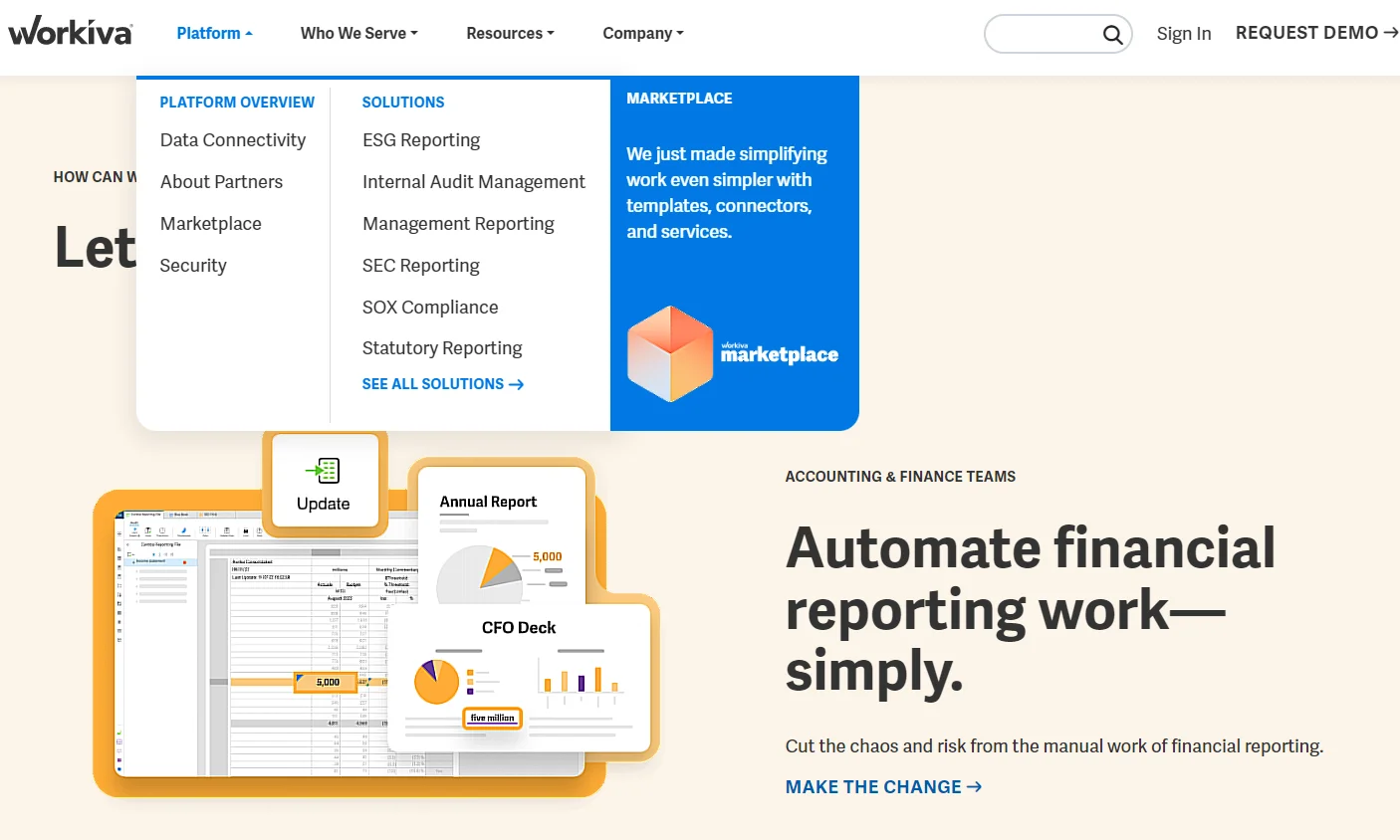
Founded: 2008
Number of employees: More than 2,500
Revenue: $537.9 million for fiscal year 2022 (a 20.1% YoY increase)
What does Workiva do?
Workiva’s SaaS solutions include ESG, financial auditing, risk management, compliance, and data management tools. It also includes document and data management as well as collaboration capabilities for distributed teams.
31. ChargeBee
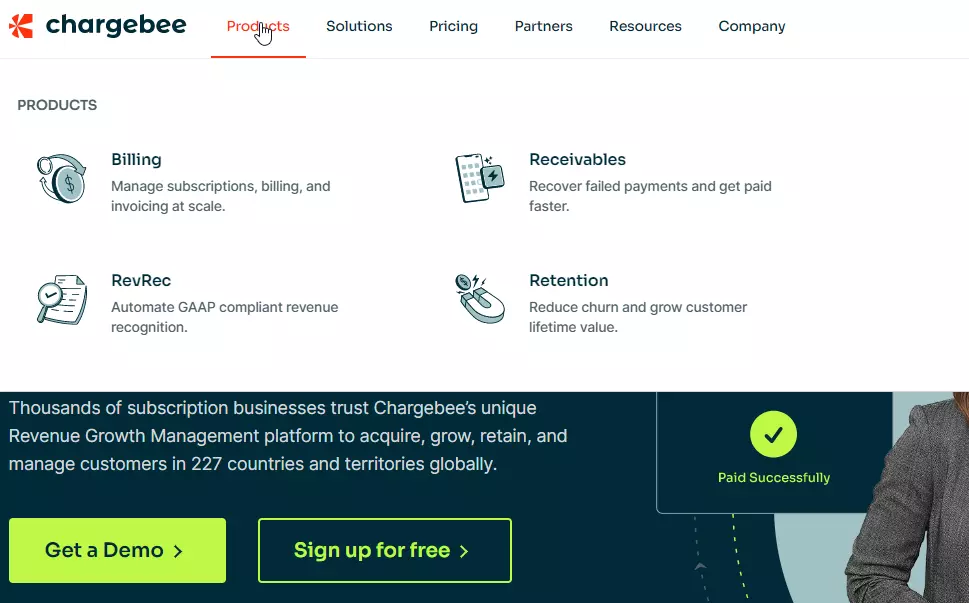
Founded: 2010
Number of employees: 1,000-5000
Revenue: Raised $250 million for fiscal year 2022
What does Chargebee do?
The Chargebee platform is a recurring revenue management solution. It enables SaaS companies (subscription businesses) to capture, retain and grow subscription revenue opportunities by automating recurring billing, revenue analytics, and subscription management.
You can check out Chargify (Maxio) for similar services.
32. Spendesk
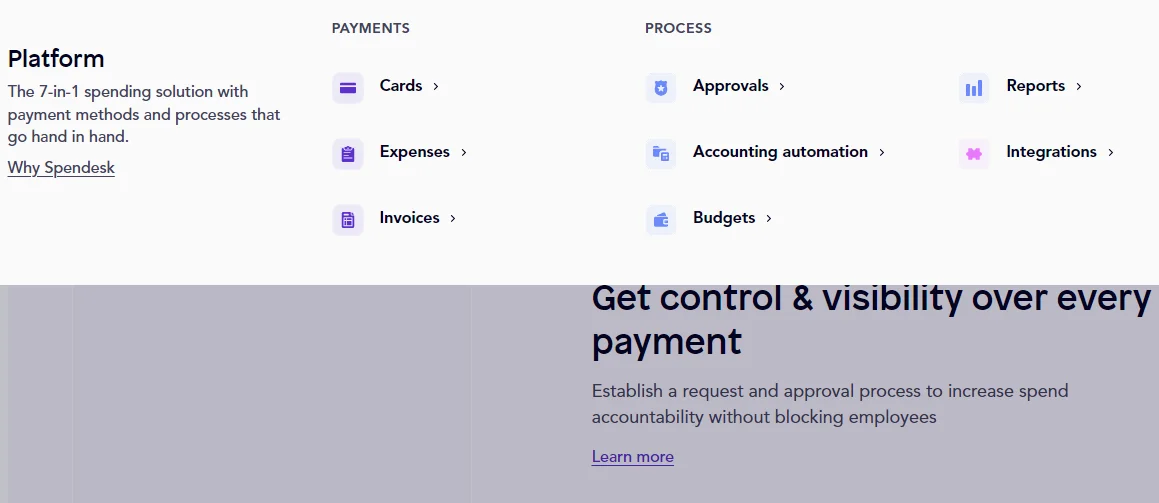
Founded: 2016
Number of employees: 250-500
Revenue: Raised $100 million in January 2022
What does Spenddesk do?
The Spenddesk platform offers spend management software. It also supports modern debit cards, replacing traditional company credit cards for tracking expenses such as travel costs. In addition, the all-in-one platform enables finance teams to manage manual processes, such as making claims.
Cloud Management SaaS Companies
You already know cloud computing has many benefits. Despite its benefits, the cloud requires continuous management, which can be difficult, especially manually. From cloud monitoring to issue reporting, the following cloud management SaaS vendors can help.
33. Splunk
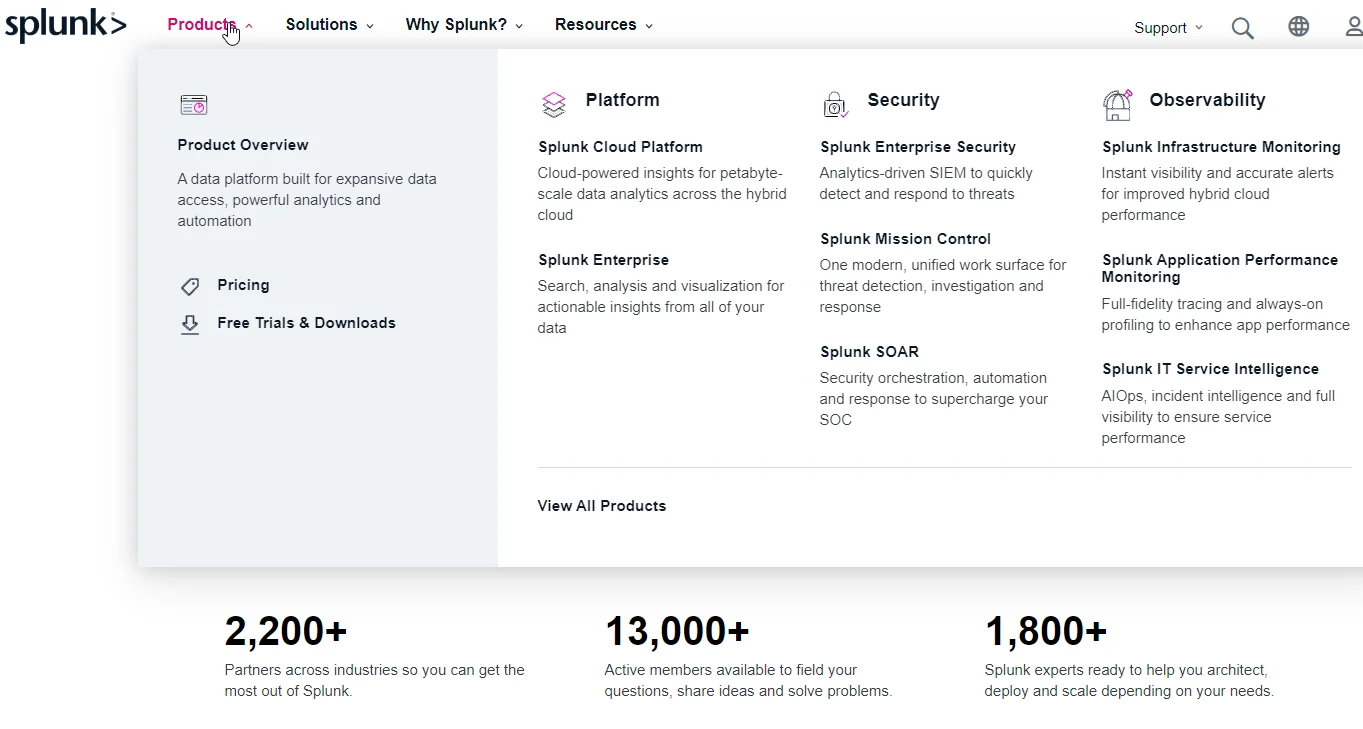
Founded: 2003
Number of employees: More than 8,000
Revenue: $2.67 billion for fiscal year 2022 (a 20% YoY increase)
What does Splunk do?
The Splunk cloud-based platform is a combination of observability, data analytics, and security solutions. It is designed for enterprises, ingesting petabytes of data and processing them fast and securely, so you can act swiftly.
34. Datadog Inc
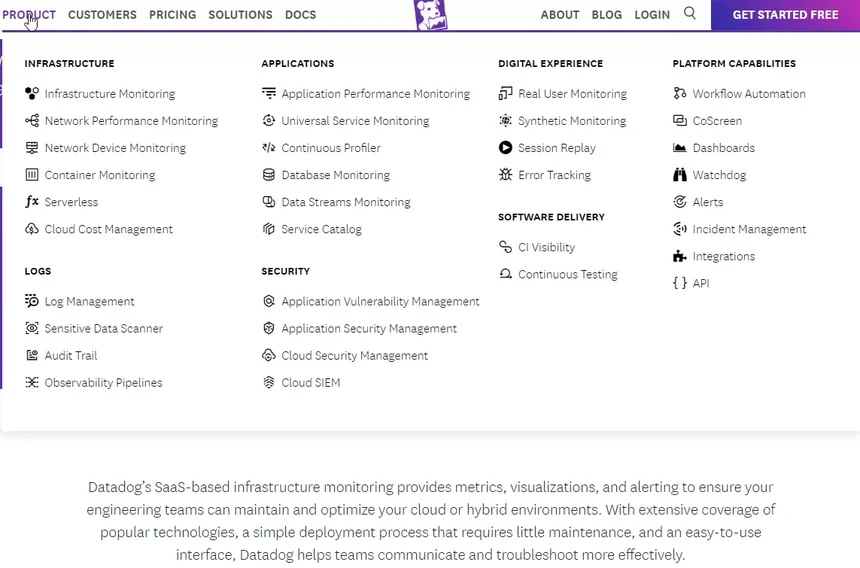
Founded: 2010
Number of employees: More than 4,800
Revenue: $1.68 billion for fiscal year 2022 (rose 63% YoY)
What does SolarWinds do?
Datadog is an all-in-one cloud management platform for enterprises. It offers loads of real-time cloud monitoring tools that cover databases, cloud infrastructure, application performance monitoring (APM), end user monitoring, etc. The platform works with almost any technology stack, anywhere.
Cloud-based SaaS services similar to Datadog include Sematext, SolarWinds, and New Relic.
35. New Relic
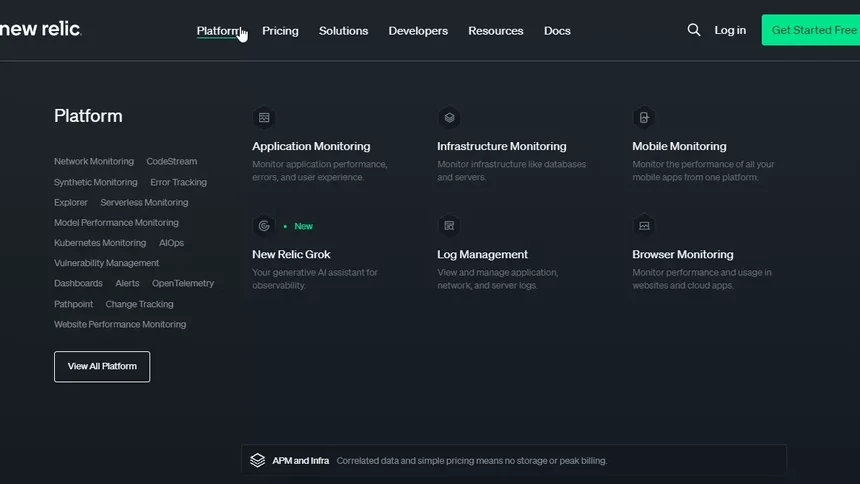
Founded: 2008
Number of employees: More than 2,200
Revenue: $786 million for fiscal year 2022 (18% YoY growth)
What does New Relic do?
New Relic is a cloud-based system and issue tracking and analytics SaaS vendor. Its cloud-based solutions enable websites, mobile applications, and companies to track real user interactions, service operators’ system performance, and hardware usage/efficiency/performance.
36. SolarWinds
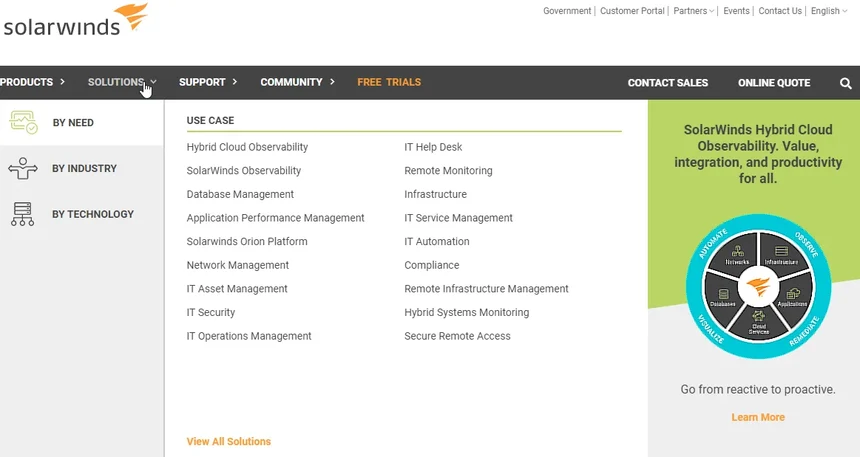
Founded: 1999
Number of employees: More than 2,300
Revenue: $719.4 million for fiscal year 2022 (rose 0.1% YoY)
What does SolarWinds do?
SolarWinds launched its SaaS-based observability platform in 2022 to unify IT management. The Platform delivers all-in-one observability, monitoring, and service management capabilities for hybrid cloud and multicloud deployments. The monitoring covers nearly everything from databases to application performance to security risks.
Other SaaS companies like SolarWinds include Splunk, Datadog, Dynatrace, and LogicMonitor.
37. Apptio
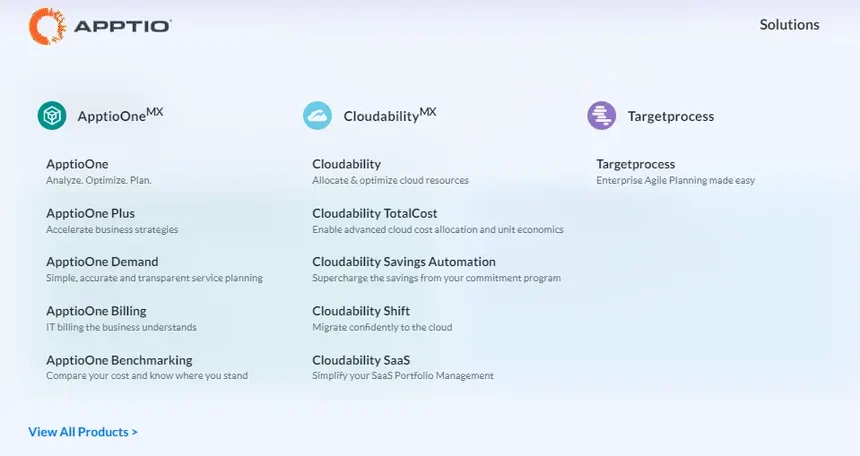
Founded: 2007
Number of employees: More than 1,300
Revenue: $300 million in 2020
What does Apptio do?
Apptio SaaS solutions help large businesses manage their IT departments like a business, including chargebacks and showbacks. Apptio products include Cloudability (cloud cost management), Apptio One (IT planning and budgeting), and TechFlow (managing resources and portfolios.
38. Densify
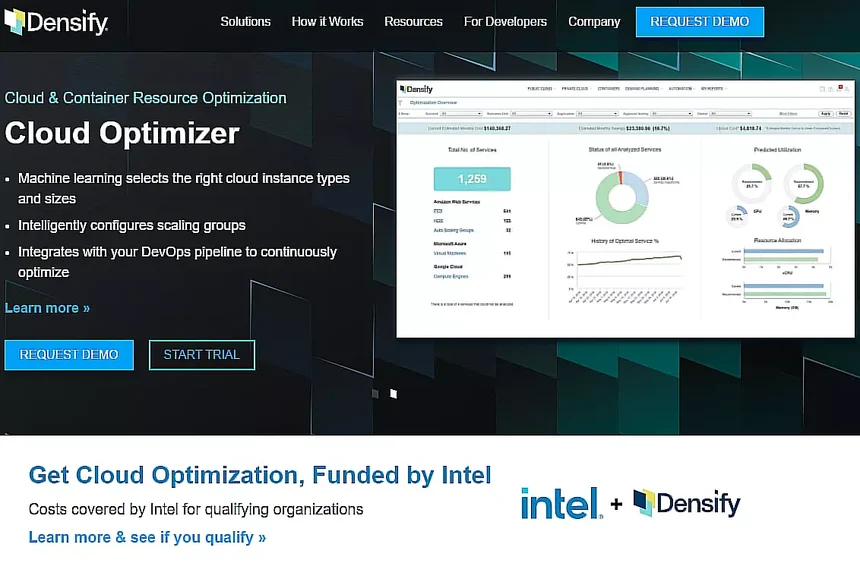
Founded: 1999
Number of employees: 50-200
Revenue: No public data available
What does Densify do?
If you want a SaaS-based container resource management provider, Densify can help. Densify’s Container Optimizer tool automates setting container limits and requests. In addition, it configures scaling groups to continually optimize your Kubernetes environment. As your operation scales, Densify enables you to configure the nodes with optimized resources in order to scale Kubernetes or containerized apps accordingly.
Communication, Collaboration, And Remote Working SaaS
Here are some SaaS providers you’ll definitely want to know if you work with distributed team members.
39. Box
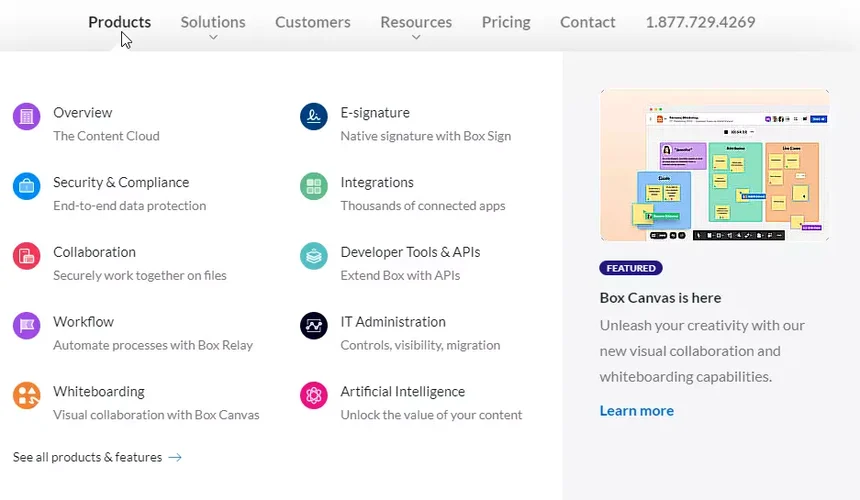
Founded: 2005
Number of employees: More than 2,500
Revenue: $990.9 million for fiscal year 2023 (rose 13% YoY)
What does Box do?
Box started as a file sharing and online storage platform for videos, documents, and photos. It enabled multiple users to collaborate on documents in real-time, enabling faster feedback. Today, Box is a full-scale content cloud with enterprise-grade security, collaboration, and e-signatures.
Dropbox, Google Drive, Sync, and Mega are other SaaS providers with similar offerings.
40. DocuSign
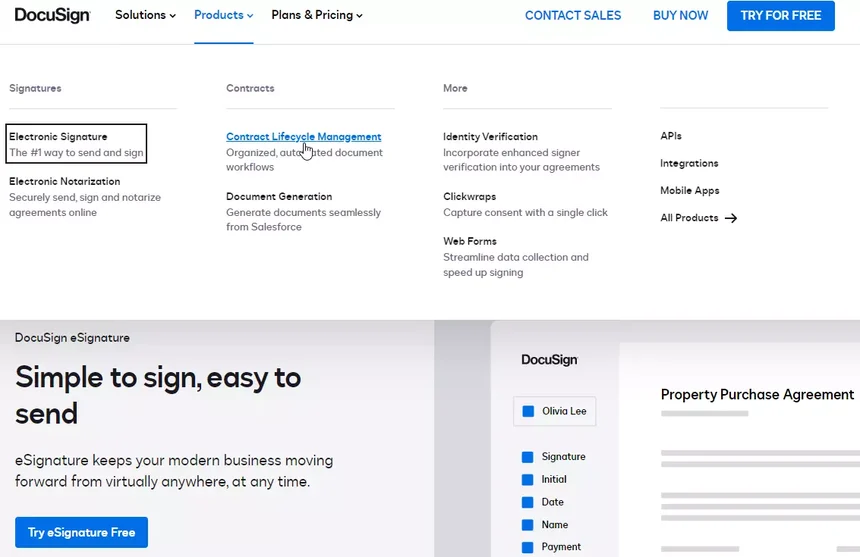
Founded: 2003
Number of employees: More than 7,300
Revenue: $580.8 million for fiscal year 2022 (rose 35% YoY)
What does DocuSign do?
DocuSign simplifies the preparation, signing, acting on, and managing of agreements by automating the process. The SaaS platform offers eSignature, a popular way to sign electronically using just about any device, from virtually anywhere, at any time. Today, its market cap exceeds $11 billion and it has 21 offices across the globe.
41. Process Street
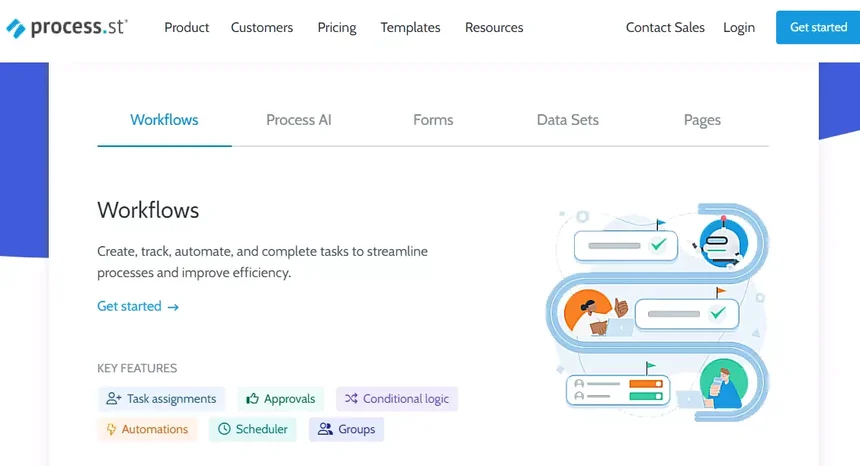
Founded: 2014
Number of employees: 50-200
Revenue: Raised $12.2 million in Series A funding in April 2020
What does Process Street do?
Process Street is a no-code planning, process modeling, and compliance management platform for teams. To reduce repeat errors and save time, it keeps all internal processes, knowledge, and documents in one place for when you need to reuse them. Assigning tasks and roles to your team is also effortless. Each person will receive an alert to check their assigned work.
Other SaaS providers in this space include Bit.ai and Confluence.
Cybersecurity SaaS Companies
The average cost of a data breach in 2022 was $4.35 million, according to IBM. Moreover, 83% of companies surveyed reported more than one breach during the same period. This emphasizes the need to use top-notch security tools to safeguard your company’s secrets and customer data. Here are some SaaS providers to check out.
42. CrowdStrike
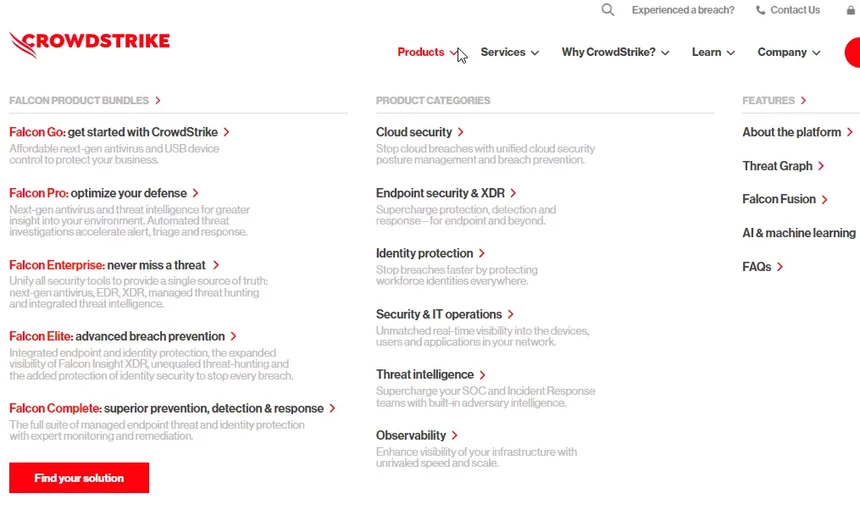
Founded: 2011
Number of employees: Over 7,200
Revenue: $2.24 billion for fiscal year 2023 (54% YoY growth)
What does CrowdStrike do?
The CrowdStrike platform is cloud-native and AI-powered and protects the people, processes, and technologies driving modern organizations. It offers a single-agent approach to stopping breaches, cyberattacks, and ransomware with products like Falcon Pro. It is a fully managed cloud security service with observability and log management tools.
43. Okta
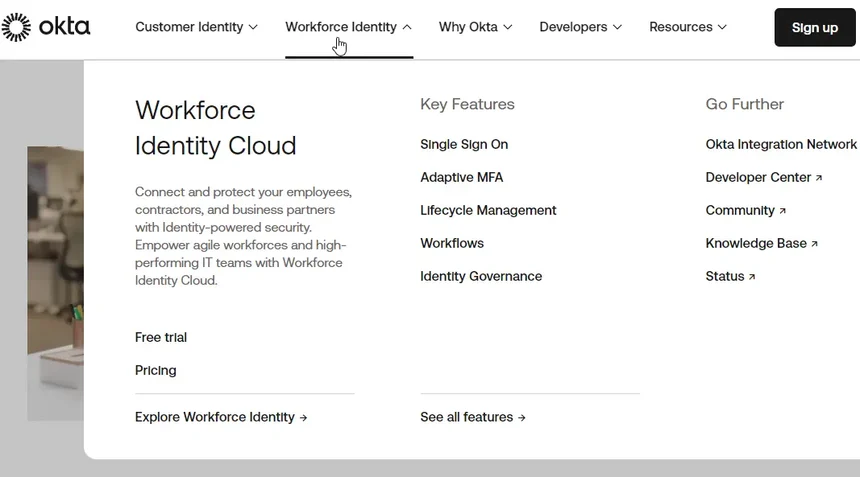
Founded: 2009
Number of employees: Over 5,000
Revenue: $1.86 billion for fiscal year 2023 (43% YoY increase)
What does Okta do?
With Okta, you get an identity and access management system to safeguard your customer and employee information. It is also a secure identity cloud you can use to link all your logins, apps, and devices in one place.
44. Proofpoint
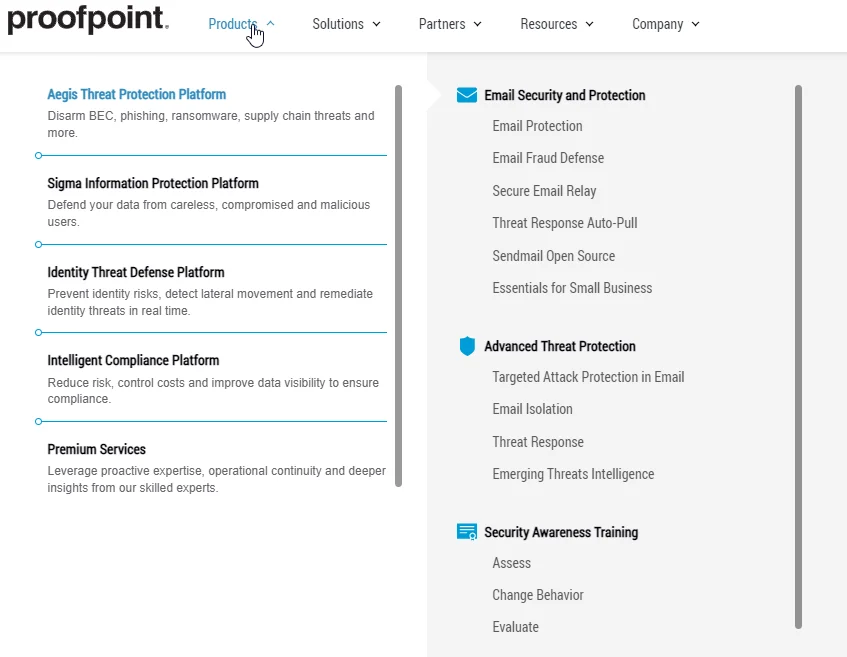
Founded: 2002
Number of employees: Over 3,560
Revenue: $1.13 billion
What does Proofpoint do?
Proofpoint is a SaaS security company specializing in an array of cybersecurity tools that protect your environment against ransomware, malware, and credential phishing. You can also use it to protect your Microsoft 365 accounts as well as detect and break account takeovers, supplier fraud, and business email compromise.
45. Veracode
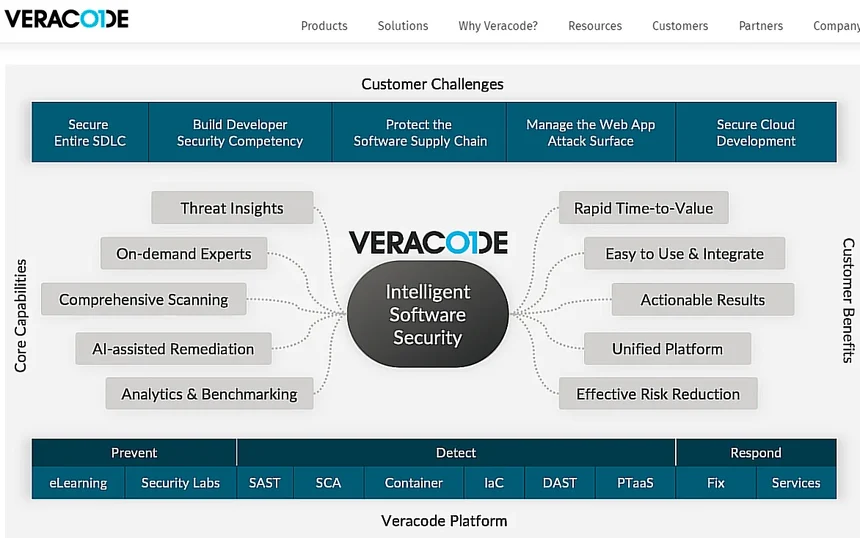
Founded: 2006
Number of employees: 500-1000
Revenue: No public data available
What does Veracode do?
The Veracode application security (AppSec) platform helps reduce security breaches and increases productivity for security and development teams. By combining process automation, integration, speed, and responsiveness, the SaaS company enables you to perform real-time threat detection so you can fix issues faster.
Website Management And Optimization SaaS
This section features SaaS companies that can help you attract, keep, and grow your audience with your website, web application, mobile presence, etc.
46. Wix
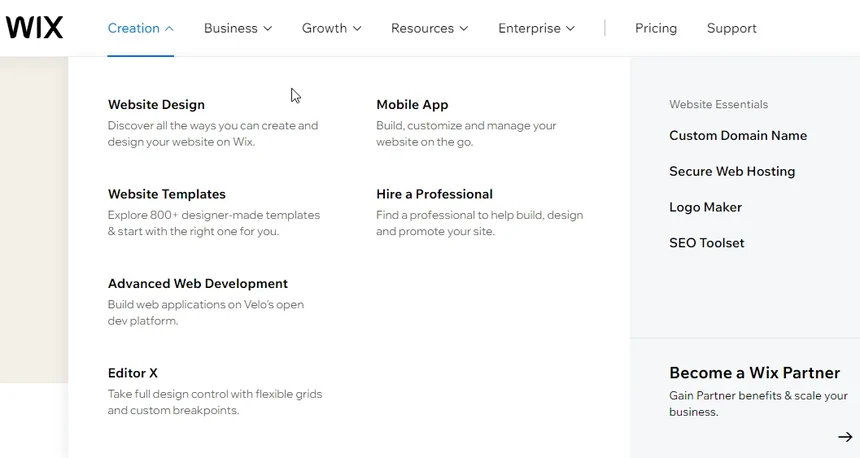
Founded: 2006
Number of employees: More than 5,900
Revenue: $1.39 billion for fiscal year 2022 (a 9% YoY increase)
What does Wix do?
This Isreali based SaaS provides a modern website development platform. With Wix, you use drag-n-drop (no-code) to create beautiful, responsive, and fast-loading websites for fitness, ecommerce, restaurant, and service businesses. It also includes multicloud hosting to improve site resilience.
Other SaaS providers like Wix include Webflow and Divi.
47. Cloudflare

Founded: 2010
Number of employees: More than 3,200
Revenue: $975.2 million (49% YoY increase)
What does Cloudflare do?
You can use Cloudflare to secure your website, corporate network, or code deployment over the internet. It also works for APIs, web applications, and corporate devices. Yet, Cloudflare is best known for its capability to protect a network from a DDOS botnet attack.
48. Kape Technologies
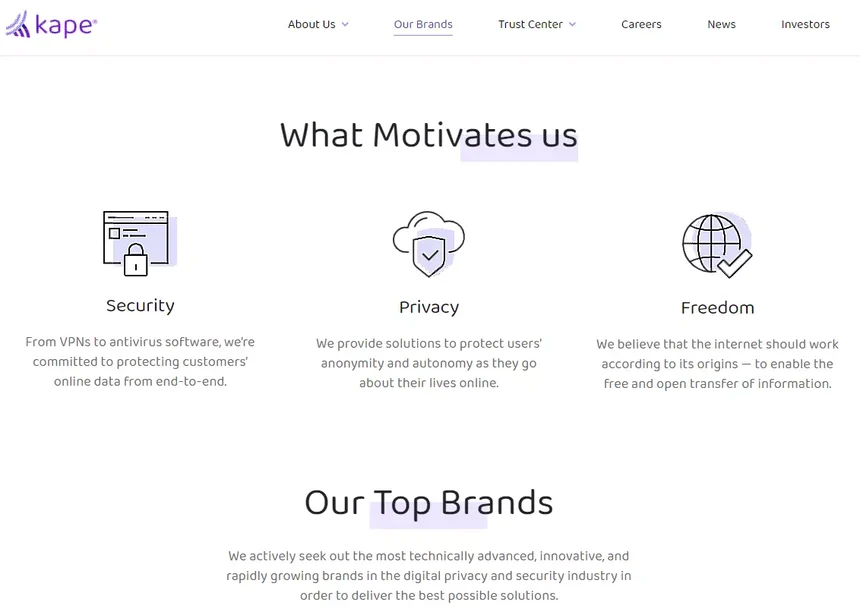
Founded: 2013
Number of employees: More than 1,000
Revenue: $623.5 million for fiscal year 2022 (a 170.3% YoY increase with an 11% profit margin)
What does Kape Technologies do?
This is a UK-based digital security software provider. Unlike cybersecurity SaaS vendors, Kape Technologies focuses on protecting users’ privacy online.
On that note, Kape recently bought ExpressVPN for $936 million to further strengthen its consumer privacy offering. It also owns CyberGhost VPN, Private Internet Access, and ZenMate, Intego Antivirus, Restoro, Webselenese, and DriverFix.
49. SEMRush
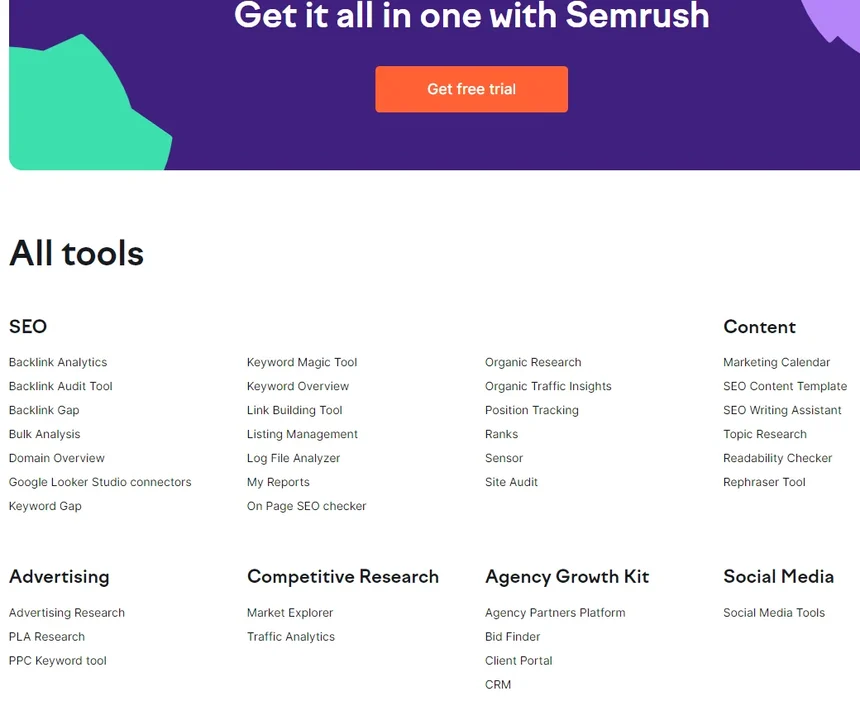
Founded: 2008
Number of employees: More than 1,000
Revenue: $254.3 million for fiscal year 2022 (a 35% YoY increase but with a $33.8 million loss)
What does SEMrush do?
Performing keyword research, competitor analysis, and website SEO audits are all key factors that affect your visibility on search engine results pages such as Google Search and Bing.
You can use SEMRush to make your business visible when people search online for products and services you provide.
SEMRush alternatives include Ahrefs, Moz, and CrazyEgg.
50. Uptime.com
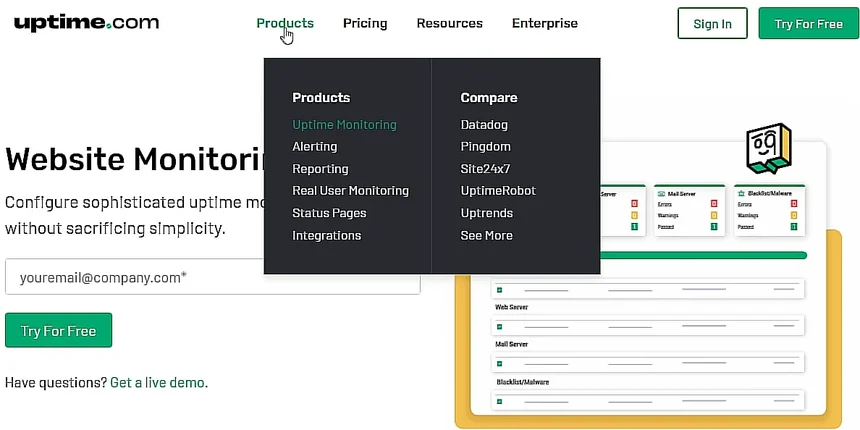
Founded: 20
Number of employees: Fewer than 100 fully remote
Revenue: No public data available
What does Kape Technologies do?
Uptime provides robust monitoring of website availability, performance, speed, errors, and bounce rates. In addition, it provides real-time user monitoring, which identifies pathway and user experience issues, enabling development teams to improve the front-end.
Further, you can monitor private and public sites from private and external locations and test your website forms and flow.
Data Analytics SaaS Companies
These SaaS providers deliver the data to cloud services as well as ELT/ETL tools to help you make sense of your data. You can find a longer, more in-depth guide to the top ETL platforms here, including Tableau, Stitch, Civis Analytics, and Informatica.
51. Snowflake
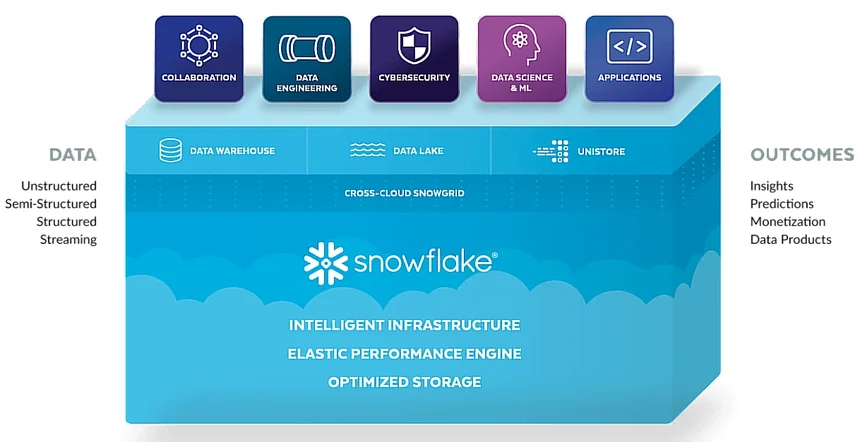
Founded: 2012
Number of employees: Over 5,800
Revenue: $2.067 billion for fiscal year 2023
What does Snowflake do?
Snowflake is a data cloud platform for cloud-native use cases. Its separate compute and storage architecture is unique and popular, enabling it to deliver fast, efficient, and highly scalable services.
See why we choose Snowflake for our own SaaS platform here. Or, discover how much Snowflake really costs here.
52. Palantir
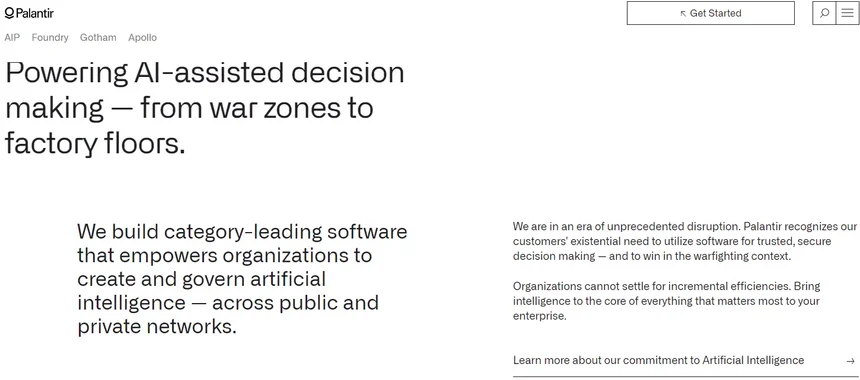
Founded: 2003
Number of employees: More than 3,800
Revenue: $1.91 billion for fiscal year 2022 (24% YoY growth – with a GAAP net income of $31 million)
What does Palantir do?
Palantir is a big data analytics platform. Through its Foundry, Apollo, and Gotham solutions, the platform enables both human-driven and machine-assisted data analyses. Palantir has a market cap that exceeds $34.5 billion in 2023.
53. Confluent
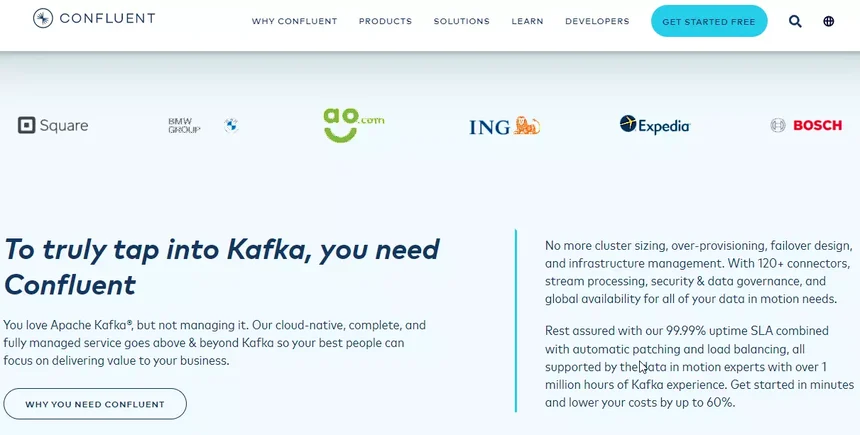
Founded: 2014
Number of employees: Over 1,000
Revenue: $765 million (30.6% YoY growth)
What does Confluent do?
The Confluent platform offers a comprehensive data streaming platform that enables you to access, store, organize, and manage data as continuous, live streams. With Confluent, you can take advantage of Apache Kafka’s enterprise-grade features while having no need to manage or monitor Kafka.
54. GoodData
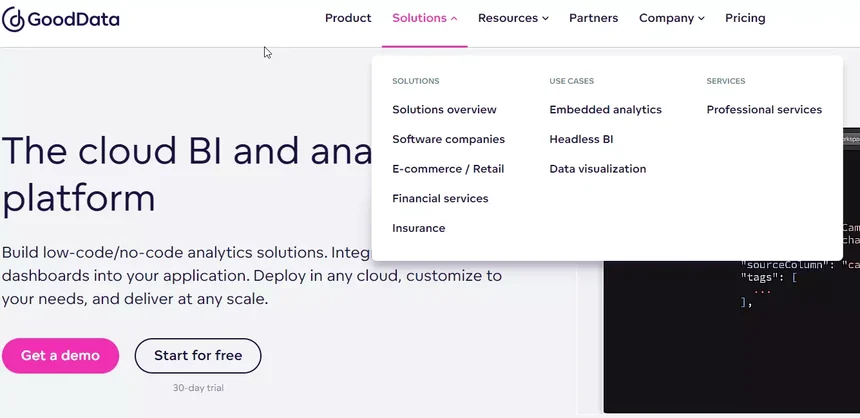
Founded: 2007
Number of employees: 250-500
Revenue: No public data available
What does Gooddata do?
The GoodData platform is designed for self-service data analytics. Using a user-friendly, no-code UI, you can create interactive dashboards with charts and analyze data on your own. It helps you do this faster and simpler with its flexible embedding options.
55. NapoleanCat
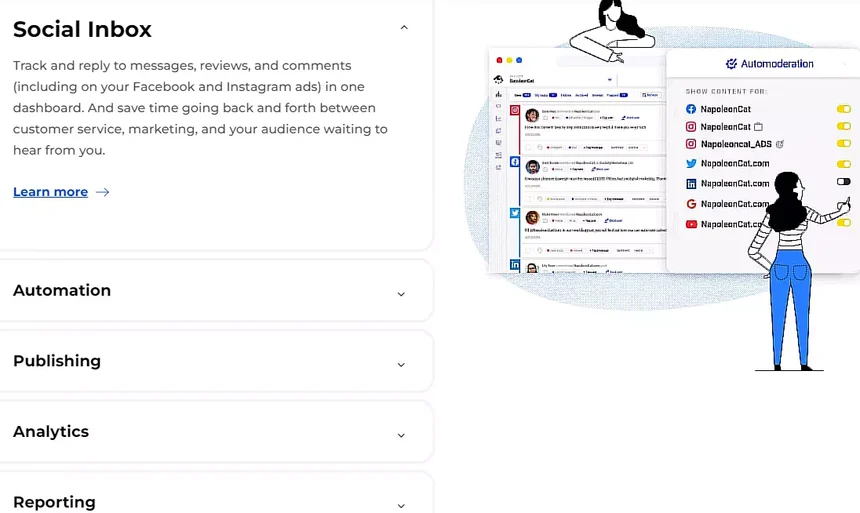
Founded: 2013
Number of employees: 50-100
Revenue: No public data available
What does NapoleonCat do?
NapoleonCat is a social media management, analytics, and automation platform. You can use it to publish across platforms, analyze your social media performance, and engage customers with scheduled posts. It’s designed for small businesses, agencies, e-commerce, and individuals.
Procurement, Supply Chain, And Logistics SaaS Companies
You can stay on top of your procurement and supply chain management with these SaaS vendors’ modern, dynamic, compliant, efficient, and collaborative tools.
56. Samsara
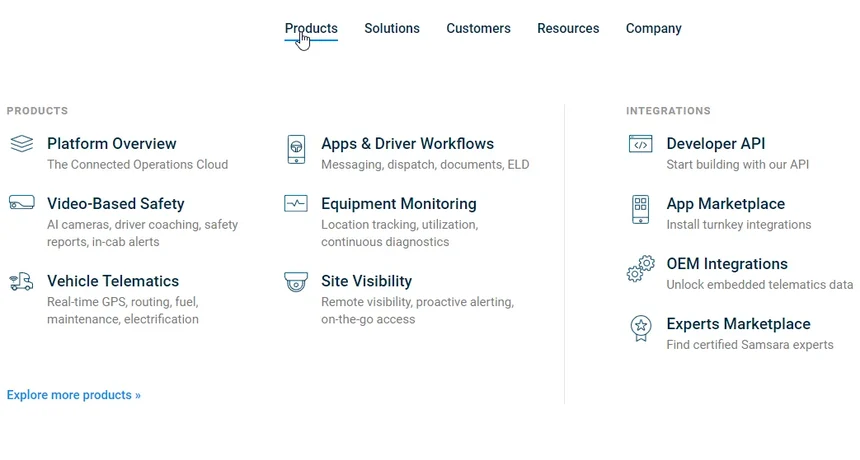
Founded: 2015
Number of employees: More than 2,200
Revenue: $795 million for fiscal year 2023 (a 42% YoY increase)
What does Samsara do?
Samsara provides an all-in-one SaaS platform for tracking your equipment, vehicles, and more. The platform includes driver safety training and monitoring (AI dash cams), GPS fleet tracking, driver workflows, and OEM telemetrics.
57. SPS Commerce
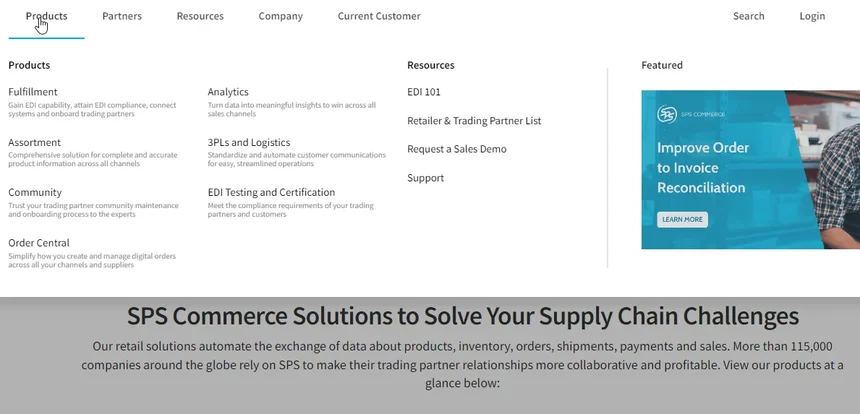
Founded: 1987
Number of employees: More than 1,350
Revenue: $450.9 million for fiscal year 2022 (up 17% YoY)
What does SPS Commerce do?
SPS Commerce is a cloud-based provider of supply chain management tools for trading partners, suppliers, retailers, and third-party logistics providers. For retailers, the platform also automates data exchange about products, sales, inventory, orders, payments, shipments, etc.
58. Constrafor
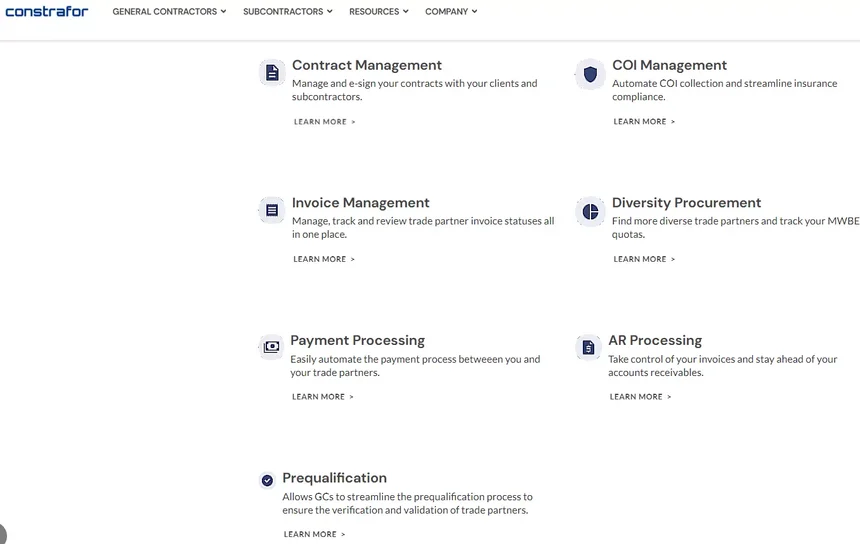
Founded: 2019
Number of employees: 11-50
Revenue: Raised $100 million in June 2023
What does Constrafor do?
The Constrafor SaaS solution provides construction procurement and embedded finance tools. It helps both GCs and subscontractors centralize, manage, and streamline construction procurement contracts, invoices, payments, and more.
59. Tropic
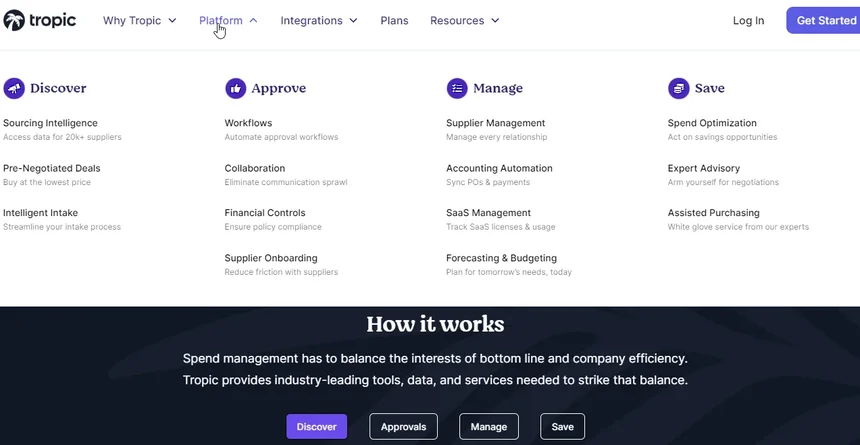
Founded: 2019
Number of employees: 200-500
Revenue: Raised $40 million in March 2022
What does Tropic do?
Tropic provides a modern Procurement System of Record to help replace inefficient legacy P2P platforms.
And as a SaaS spend management and procurement platform, its end-to-end approach enables companies of all sizes to procure software, administer contracts, track usage, and gain a competitive advantage.
60. Validere
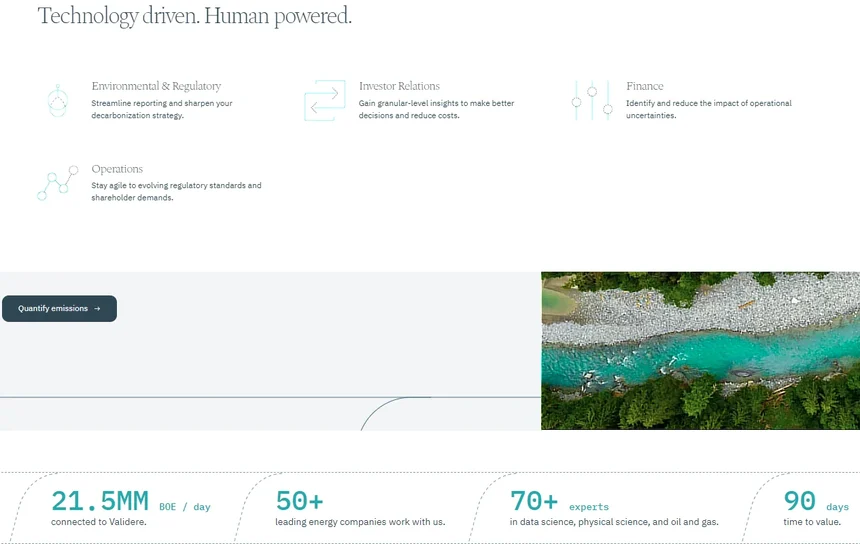
Founded: 2015
Number of employees: 100-200
Revenue: Raised $43.1 million in April 2022
What does Validere do?
Validere measures the efficiency of energy supply chains. It offers operational and carbon hubs to keep track of inventory, monitor emissions reporting, perform clean auditing, and improve facility efficiency.
Healthcare SaaS Companies
Healthcare companies tend to move slower than most due to the multitude of compliance requirements they must meet – once, then again, and again. Yet, these healthcare SaaS companies are shaking up the sector.
61. Veeva Systems
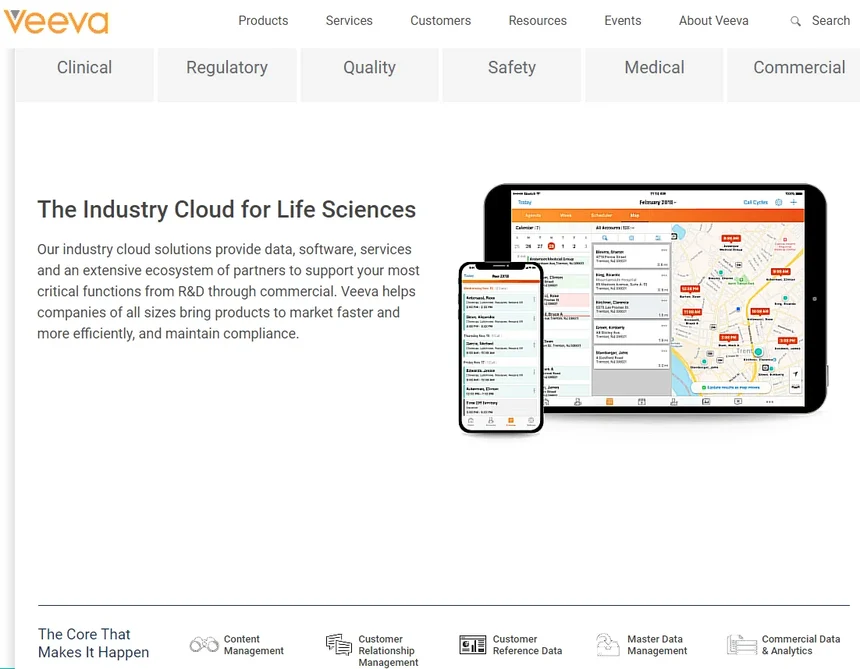
Founded: 2007
Number of employees: More than 5,500
Revenue: $1.85 billion for fiscal year 2022 (up 26% YoY)
What does Veeva do?
Veeva is a world leader in cloud software for companies in the life sciences sector. It offers services such as customer reference data, commercial data analytics, and customer service tools. Its customers range from large pharmaceutical providers to burgeoning biotechs.
62. AllScripts
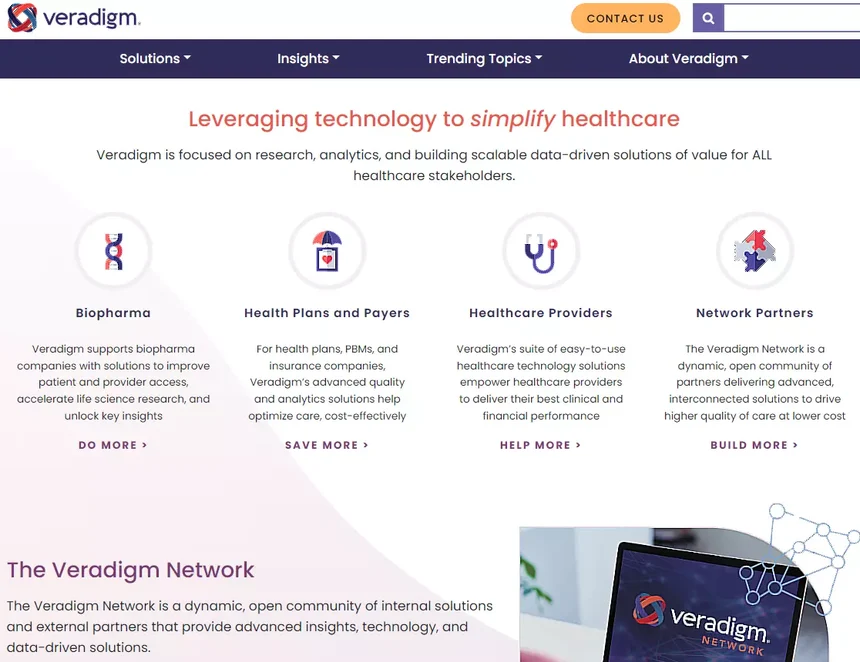
Founded: 1986
Number of employees:
Revenue: $640 million for fiscal year 2022
What does AllScripts do?
Previously known as Veradigm, the AllScripts healthcare SaaS platform provides a combination of point-of-care tech solutions and clinical finance tools. It also helps healthcare stakeholders to research, collect, analyze, and make use of health data at scale.
63. WebMD Health Corp

Founded: 1996
Number of employees: More than 1,800
Revenue: $119 million for fiscal year 2022 (up 28% YoY)
What does WebMD do?
A popular, consumer-focused healthcare website, WebMD provides news and expert-backed information about health and wellbeing. It also offers health management tools.
In addition, WebMD provides a variety of technology and transaction solutions for healthcare providers and physicians as well as health plans through WebMD Health Services.
Several other services like WebMD include Healthline, Mayo Clinic, and MedScape.
64. Membersy
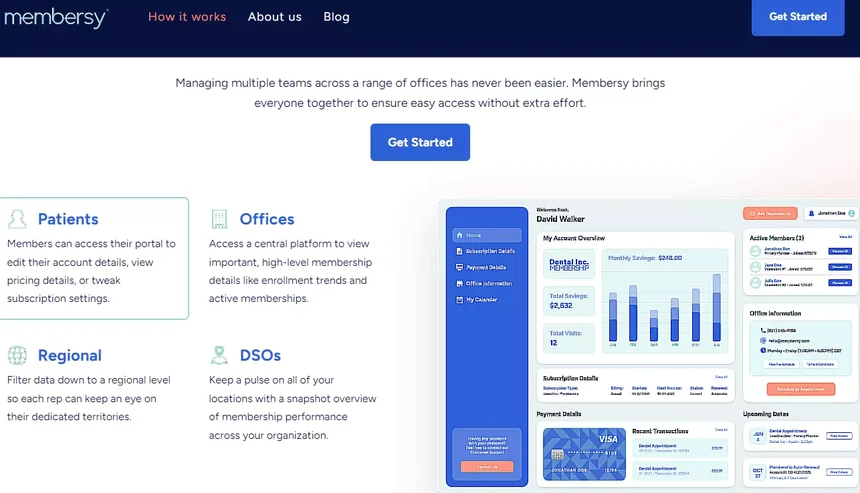
Founded: 2015
Number of employees: 51-200
Revenue: Raised $66 million Series B funding in 2021
What does Membersy do?
Membersy is a B2B SaaS providing a platform for Dental Service Organizations to launch and grow modern, regulatory-compliant, and personalized membership plans for customers regardless of the DSO’s size.
The platform includes billing and recurring revenue automation, marketing, and a dedicated account manager.
65. Greenlight Guru
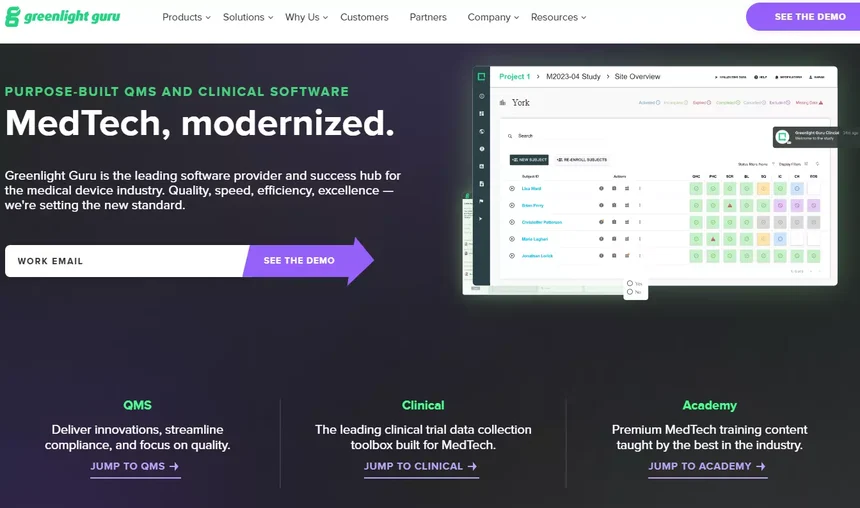
Founded: 2006
Number of employees: 200-500
Revenue: No public data available
What does Greenlight Guru do?
Greenlight Guru is a cloud-based quality service management system for medical device companies. It includes document management for clinical data and project management capabilities to help streamline medical device companies’ workflows.
Cloud Financial Management SaaS Companies
The following SaaS providers deliver advanced cloud cost management tools to help you understand, control, and optimize your cloud spending.
66. CloudZero
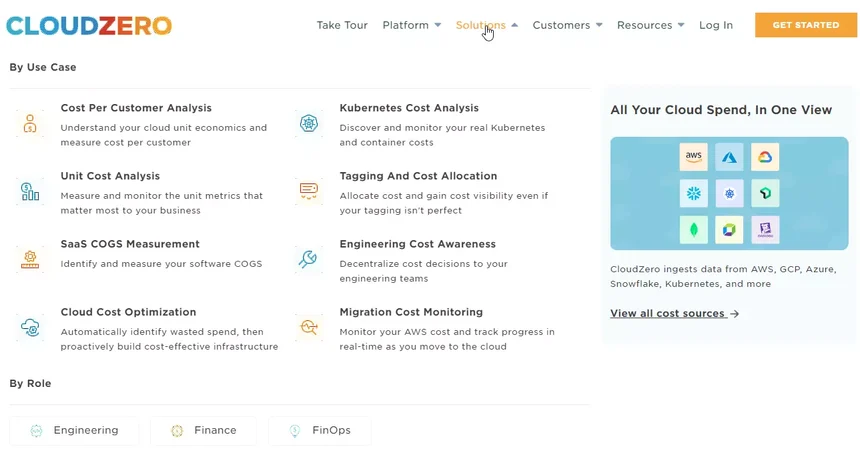
Founded: 2016
Number of employees: 50-200
Revenue: No public data available
What does CloudZero do?
Using CloudZero’s cloud cost intelligence platform, you can collect, understand, and act on cloud cost telemetry across the AWS, Azure, and GCP public clouds — without endless manual tagging. It also covers Kubernetes, Snowflake, and other platforms such as Datadog and MongoDB.
CloudZero delivers granular cost insights, such as the cost per customer, team, software feature, environment, and project, unlike traditional tools such as CloudHealth and Cloudability which report totals and averages.
Our team recently found over $1.7 million in annualized cloud cost savings using CloudZero, which you can learn about and implement for yourself.
It’s not just us. Cutting-edge SaaS companies like Drift (saved over $2.4 million in AWS spend), Remitly, and MalwareBytes use CloudZero. See CloudZero’s customer success stories for yourself.
67. CloudHealth (VMware Aria Cost powered by CloudHealth)
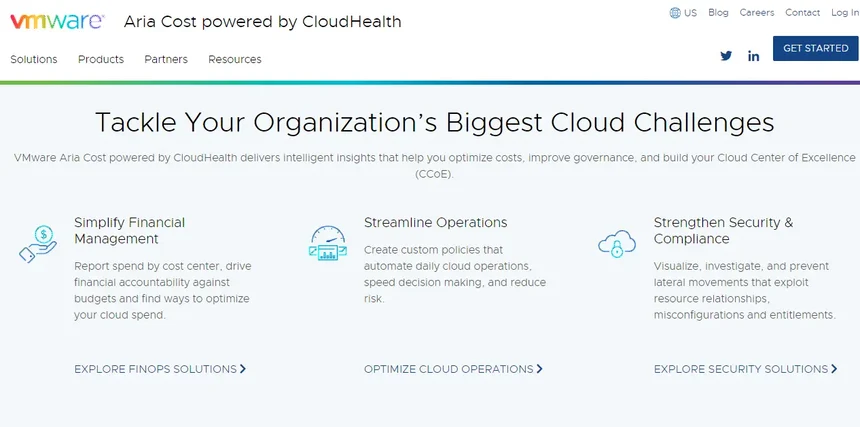
Founded: 2012
Number of employees: Over 250
Revenue: No public data available
What does CloudHealth do?
CloudHealth is a traditional cloud cost management platform. It offers tools for collecting, analyzing, and sharing cloud cost data, cloud governance, and security. VMware, the virtualization technologies company, owns CloudHealth (now Aria Cost Powered by CloudHealth).
68. Cloudability
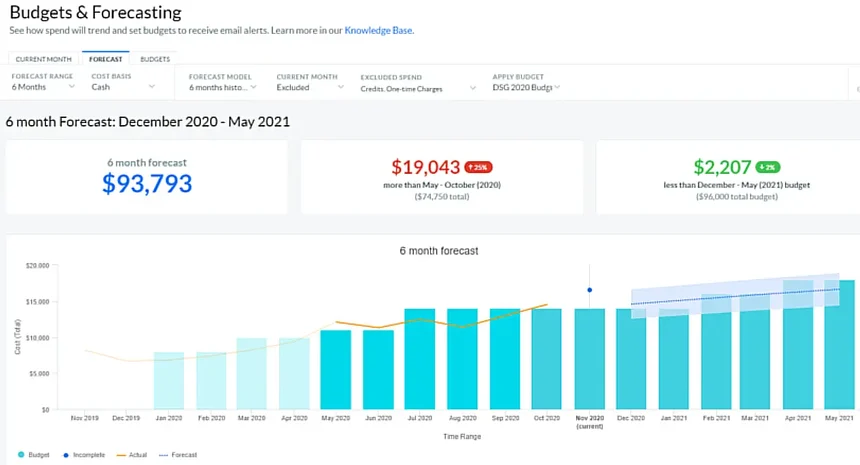
Founded: 2011
Number of employees: 50-200
Revenue: No public data available
What does Cloudability do?
Apptio’s Cloudability is also a traditional cloud cost management platform with cloud governance and security tools. It helps companies use tags to collect, track, and report on cloud costs across multicloud deployments.
69. Cloudbolt Software
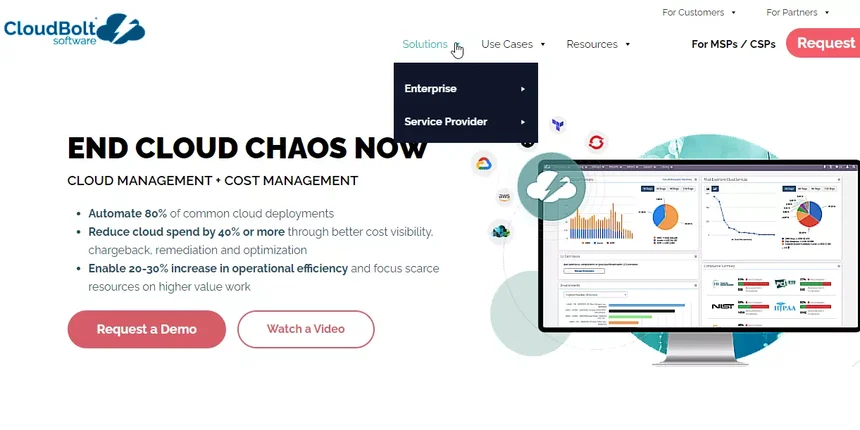
Founded: 2012
Number of employees: 50-200
Revenue: No public data available
What does Cloudbolt do?
Cloudbolt is a cloud platform for enterprises that want to increase visibility across hybrid and multi-cloud systems. It has a hybrid cloud cost management solution you can use to collect, track, and report your cloud cost data in one place.
70. Kubecost
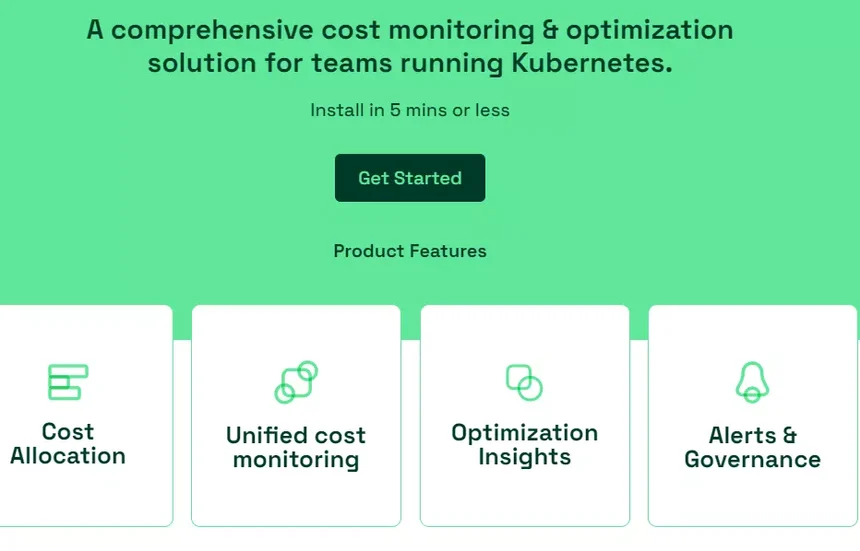
Founded: 2019
Number of employees: 50-100
Revenue: No public data available
What does Kubecost do?
The Kubecost platform provides a robust way to collect, monitor, and share cost data on Kubernetes costs. It lets you view your costs in Kubernetes concepts such as namespace labels, services, and while it started as an open-source platform, the K8s cost tool has changed course to a paid SaaS platform.
Marketing SaaS Companies
There are around 30,000 SaaS companies globally in 2023. Nearly 15,000 of them are in the marketing space, according to Ascendix.
71. HubSpot

Founded: 2006
Number of employees: More than 7,433
Revenue: $1.731 billion for fiscal year 2022 (up 33%)
What does HubSpot do?
HubSpot offers marketing, sales, and CRM tools in one place. It is best known for its inbound marketing software. This includes social media marketing, content management, SEO, and web analytics.
Other SaaS with similar offerings include Freshworks, Marketo, Ontraport, Pipedrive, and Keap.
72. Attentive
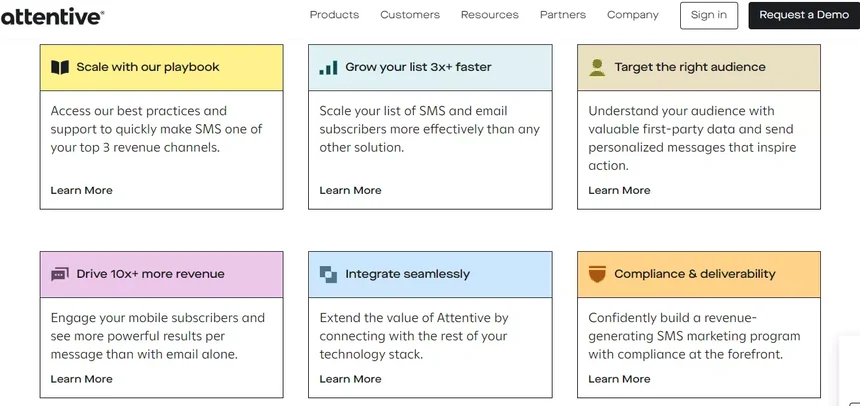
Founded: 2016
Number of employees: 1,000-5000
Revenue: Raised $863 million
What does Attentive do?
Attentive has stepped up to provide robust two-way messaging solutions as customers warm up to SMS messaging with their favorite brands.
This technology helps retail and ecommerce brands reach their targeted audience with personalized messaging, promising over 30% clickthrough rates, 99% open rates, and 25X ROI.
73. Intercom
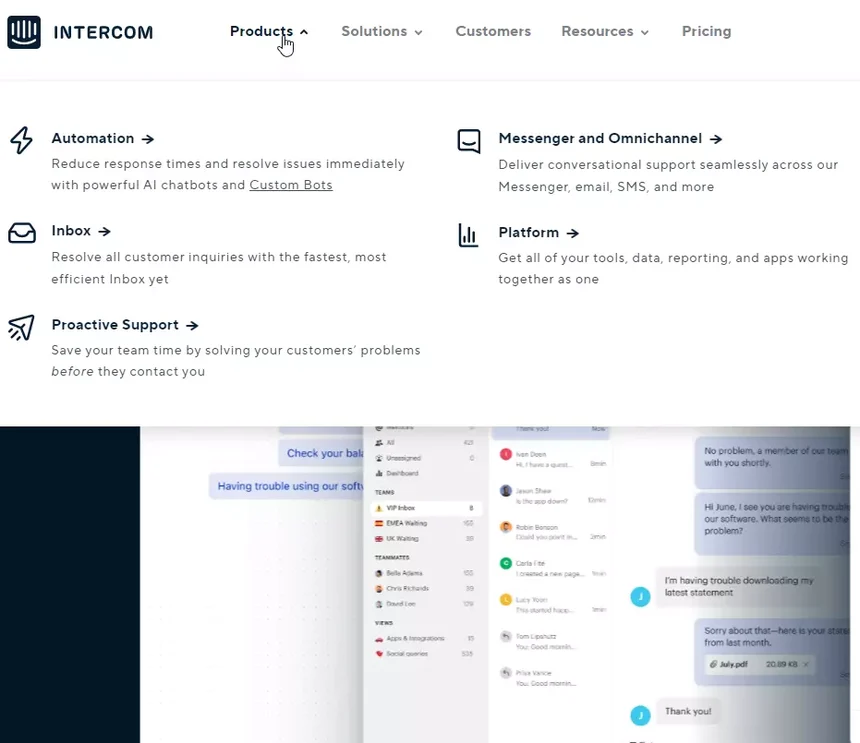
Founded: 2011
Number of employees: More than 1,000
Revenue: $200 million in 2021
What does Intercom do?
Intercom is a customer service automation platform for different size companies. The platform delivers conversational customer support across SMS, email, Messenger, and other channels. For its customers, that means resolving issues faster to boost customer satisfaction.
74. SproutSocial
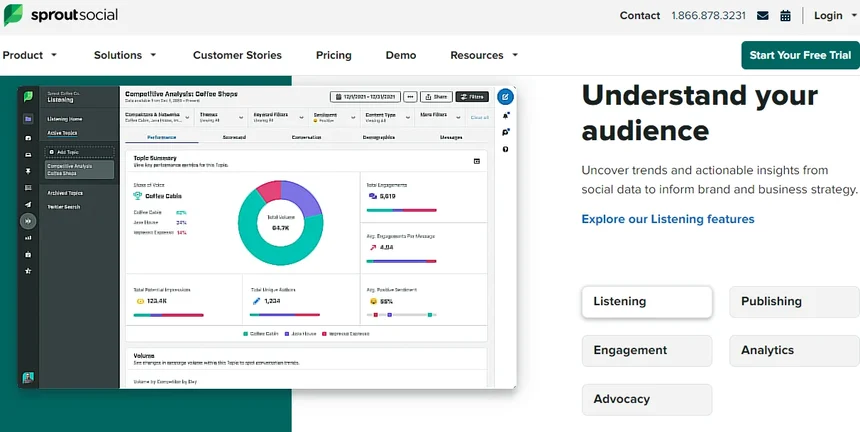
Founded: 2010
Number of employees: More than 1,000
Revenue: $253.8 million for fiscal year 2022 (up 35%)
What does SproutSocial do?
With SproutSocial, you get an all-in-one social media management platform. Not only can you schedule and auto-post social media posts, but the software also includes tools to measure mentions, engagement, analytics, and advocacy.
All this can help you understand and influence how your brand shows up to your audience. Other SaaS companies like SproutSocial include Buffer, Hootsuite, and Agorapulse.
75. ActiveCampaign
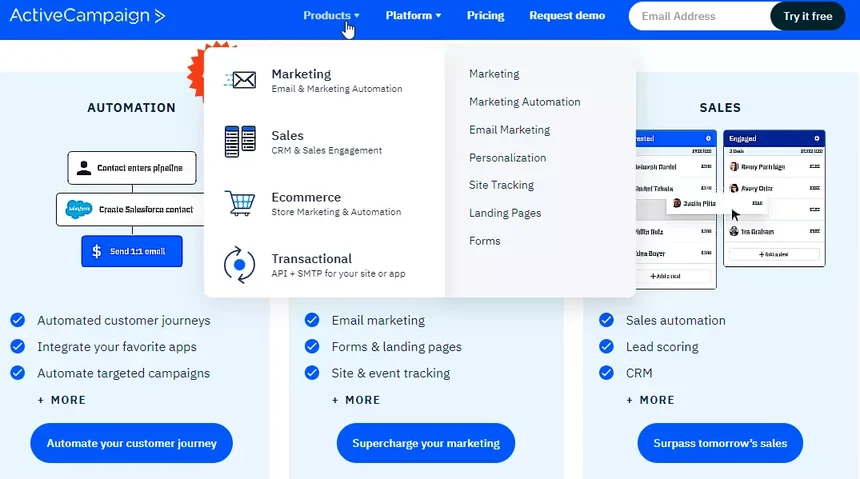
Founded: 2003
Number of employees: More than 1,000
Revenue: $97 million for fiscal year 2022
What does ActiveCampaign do?
The ActiveCampaign marketing automation platform enables small and midsize businesses to do email marketing and other marketing automation tasks. It also includes personalization, site tracking, and landing pages — all to improve customer engagement.
Other SaaS companies in this niche include ConvertKit, MailChimp, GetResponse, Klaviyo, and Constant Contact.
76. Verb

Founded: 2012
Number of employees: 200-500
Revenue: $9.4 million for fiscal year 2022 (a 12% YoY increase)
What does Verb do?
VERB is a digital sales platform. It offers interactive video technology to enable businesses to attract, engage, and convert customers. It includes live streaming to help your sales team connect with customers in real-time.
Project Management SaaS Companies
Project management software enables your team members to work together cohesively without going off the rails – or budget and time. The following are some of the top providers to know in this space.
77. Asana
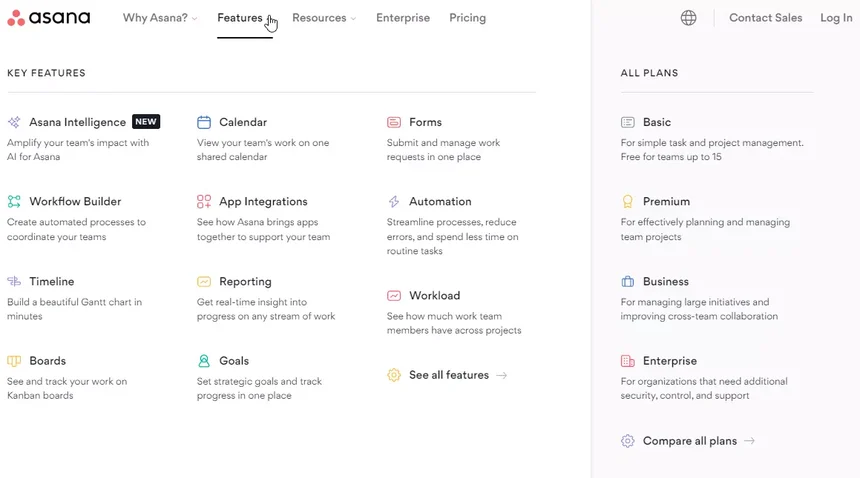
Founded: 2008
Number of employees: More than 1,780
Revenue: $547.2 million for fiscal year 2023 (up 45%)
What does Asana do?
With Asana, your distributed team can collaborate, manage projects, and work together across functions. All the tools you’d expect are included, such as a workflow builder, boards, and calendar. Diverse visuals make it easy to track project progress as well.
Companies like Asana include Monday.com, Trello, and Basecamp
78. Jira
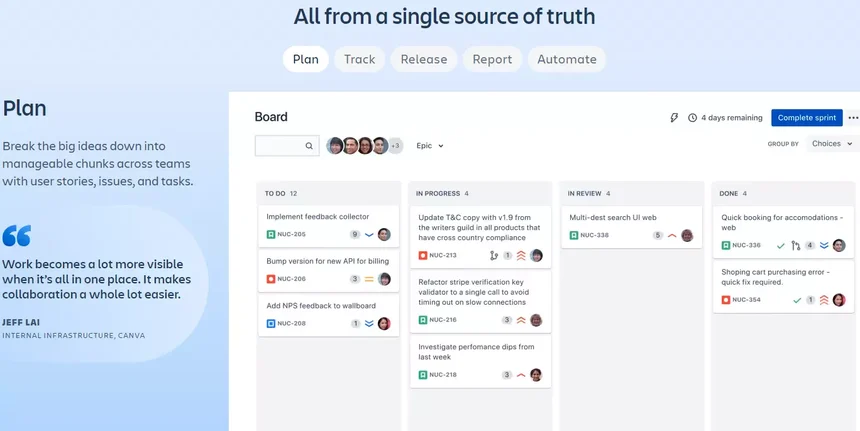
Founded: 2002
Number of employees: Part of Atlassian team
Revenue: Part of Atlassian
What does Jira do?
Jira is a favorite project management tool for developers and other IT technicians. It is especially prized as a project planning and issue-tracking tool. You can use it to break down large projects into manageable chunks and measure progress along the way. It is an Atlassian subsidiary.
Other top SaaS companies in this niche are Clickup, Slack, and Airtable.
79. Notion
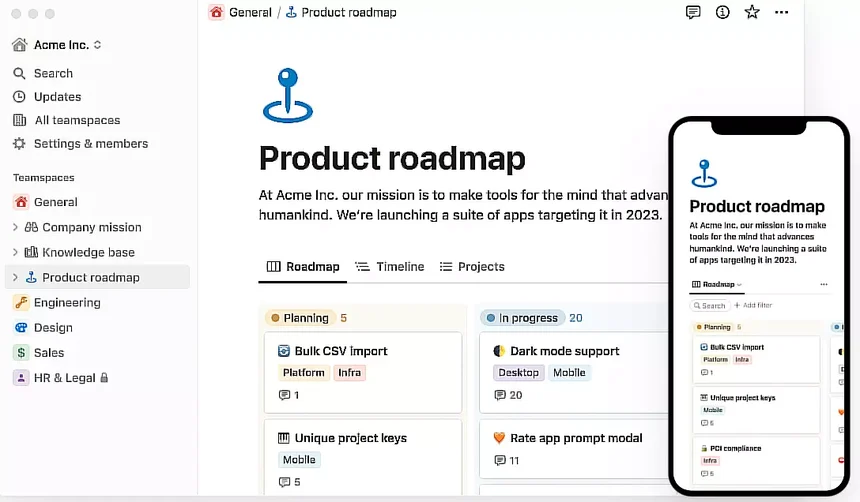
Founded: 2012
Number of employees: More than 1,700
Revenue: No public data available
What does Notion do?
Notion markets itself as a product roadmap rather than a mere project management tool. That’s because it includes handy capabilities like roadmapping, wikis, and document management. Notion’s valuation recently hit $10 billion.
Notion alternatives include Confluence, Evernote, and Notability.
Design And Product Development SaaS Companies
You can use these SaaS offerings to put your abstract ideas on the canvas and create a product people love.
80. Canva
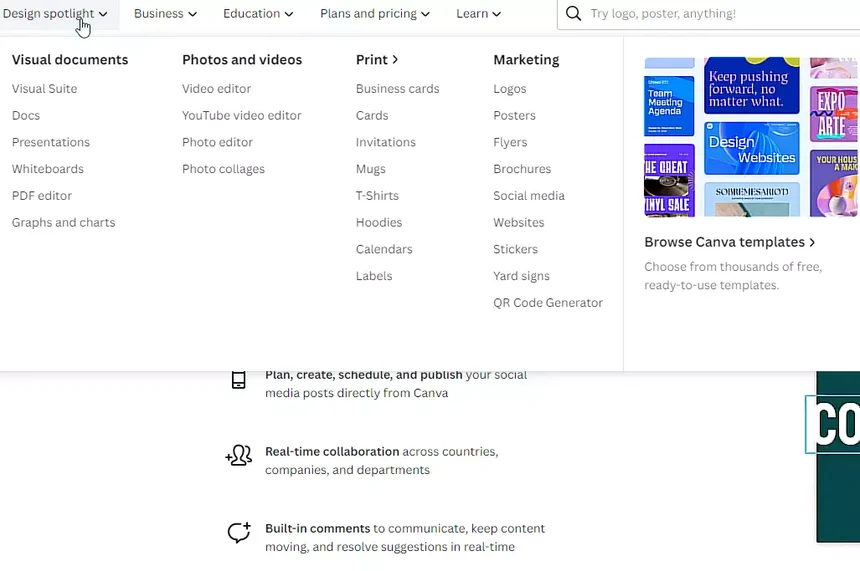
Founded: 2012
Number of employees: More than 3,500
Revenue: $1.6 billion annualized (up 135% YoY)
What does Canva do?
From its base in Perth, Australia, Canva offers a modern graphics design platform for designing everything from banners to logos. It also includes templates for nearly all use cases, including social media sites, websites, and other marketing channels you use personally or professionally.
81. Figma

Founded: 2015
Number of employees: More than 350
Revenue: $400 million for fiscal year 2022 (after Adobe’s $20 billion acquisition)
What does Figma do?
Figma designed an all-in-one platform you can use to plan, design, and prototype your product, from idea to market. It includes an online whiteboard, team meetings, and diagramming tools to help you get there.
Other SaaS providers like Figma include SmartDraw, Draw.io, and Diagrams.net.
82. Productboard
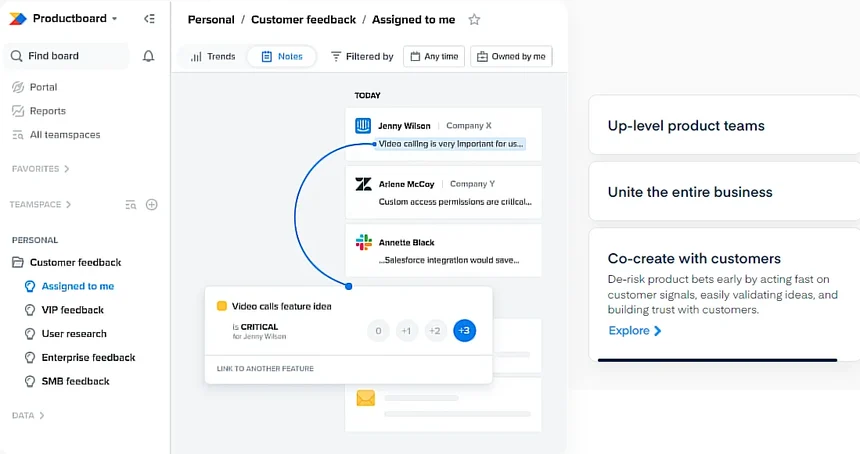
Founded: 2014
Number of employees: 200-500
Revenue: Raised $125 million in Series D funding for a $1.725 billion valuation
What does Productboard do?
A modern product management platform, Productboard enables you to build and share product roadmaps, collect feedback, and prioritize the most impactful initiatives.
Companies like Productboard include Creately, LucidChart, Visio, and Miro.
83. Feedier
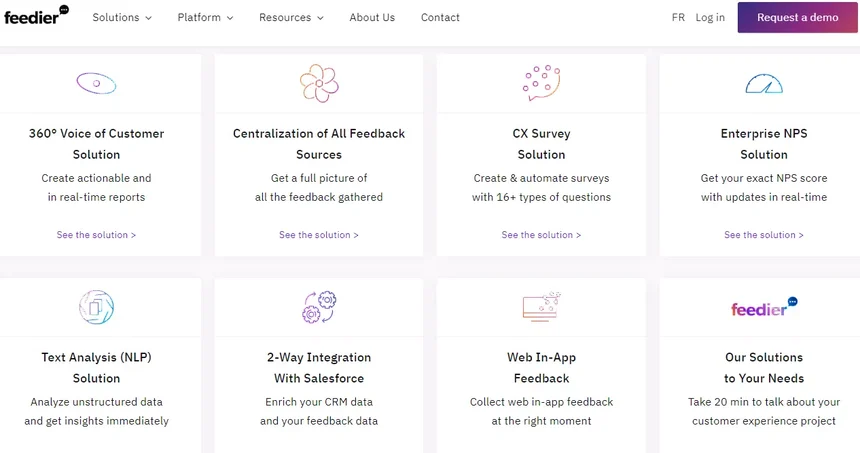
Founded: 2018
Number of employees: 10-50
Revenue: $3 million for fiscal year 2023, according to Latka
What does Feedier do?
Feedier empowers you to import, analyze, and manage feedback from various sources, including customer reviews, SMS texts, CRM, forms, and tickets.
By doing this, you learn what features to add to your application, about website usability, and more use cases. You can then improve customer experiences at every stage of their journey.
There are several SaaS companies like Feedier; Promoter.io, Ask Nicely, Refiner, Lattice, and Birdeye.
Real Estate And Construction SaaS Companies
Real estate investors may not like disruption, but they sure like using the following SaaS platforms.
84. Autodesk
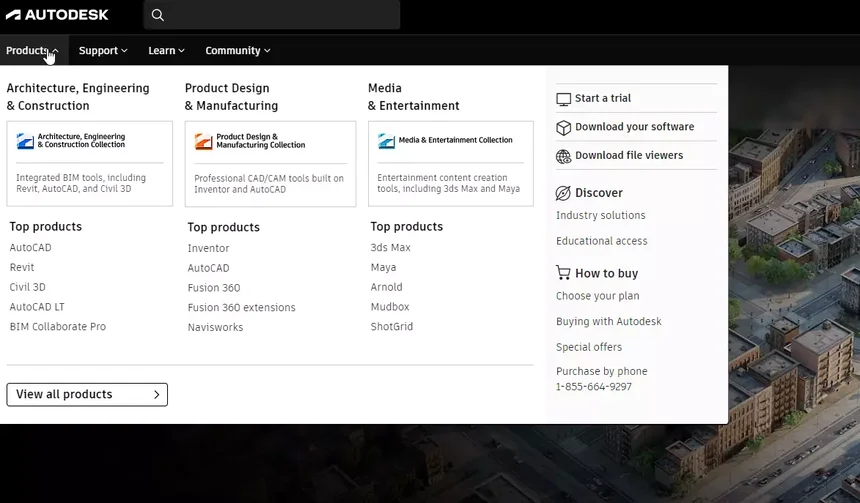
Founded: 1982
Number of employees: More than 13,700
Revenue: $5.01 billion for fiscal year 2023
What does Autodesk do?
Autodesk Software has more than 101 products to help you with designing, building, engineering, and manufacturing construction jobs. Some of its top products include AutoCAD, Civil 3D, and Fusion 360. It also covers 3D artists and production teams’ needs.
85. Qualia
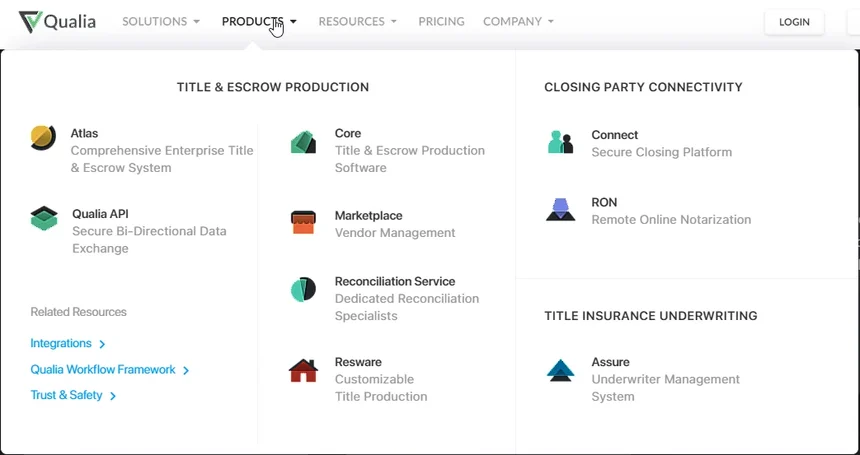
Founded: 2015
Number of employees: 50-200
Revenue: Raised $65 Series D funding in 2020 to reach $1 billion valuation
What does Qualia do?
With Qualia, real estate and mortgage companies have access to a suite of digital closing products that are accessible from anywhere, at any time. With cloud-based escrow, title, and eClosing products, Qualia simplifies, streamlines, and improves the complex closing process for realtors.
86. Procore
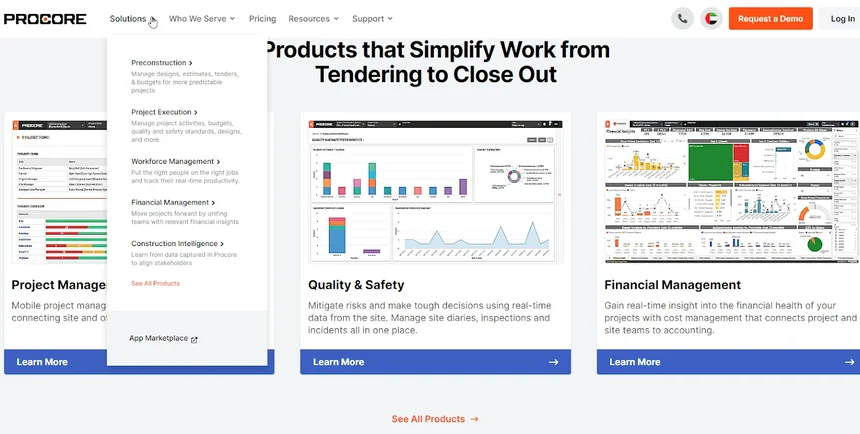
Founded: 2002
Number of employees: More than 2,000
Revenue: $420 million for fiscal year 2022 (up 40% YoY)
What does Procore do?
Construction companies can use Procore’s SaaS platform to manage their entire construction project lifecycles. The platform offers management solutions for projects, quality inspections, safety risk mitigation, and construction finances.
87. SmartRent
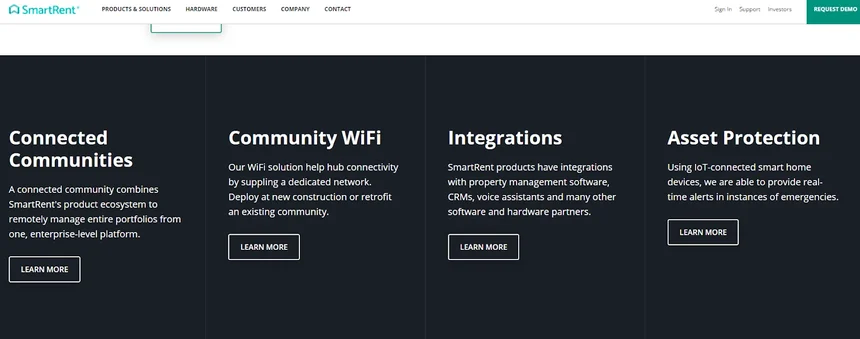
Founded: 2017
Number of employees: More than 500
Revenue: $167.8 million (up 52% YoY)
What does SmartRent do?
SmartRent offers a smart building technology platform for tenants, rental property owners, and managers. Homebuilders and developers can also integrate smart home automation into their properties to improve asset visibility and control from anywhere.
88. Mashvisor
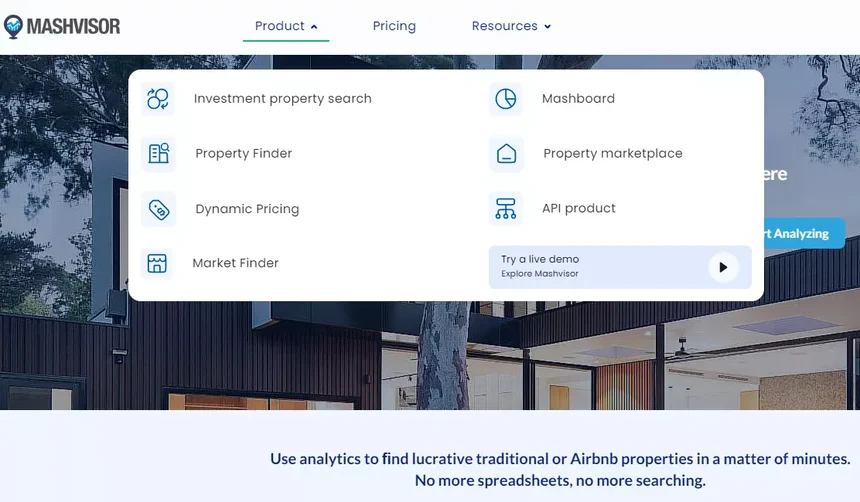
Founded: 2014
Number of employees: 50-100
Revenue: No public data available
What does Mashvisor do?
Mashvisor enables real estate investors to use analytics and AI to find up-to-date MLS listings, pick lucrative investment properties, and make income projections based on home sales in a neighborhood, town, or city. You can use it to analyze traditional rentals or Airbnb properties.
Education SaaS Companies
This section shares some of the top learning management SaaS companies at the forefront of transitioning education into the digital era.
89. Kahoot
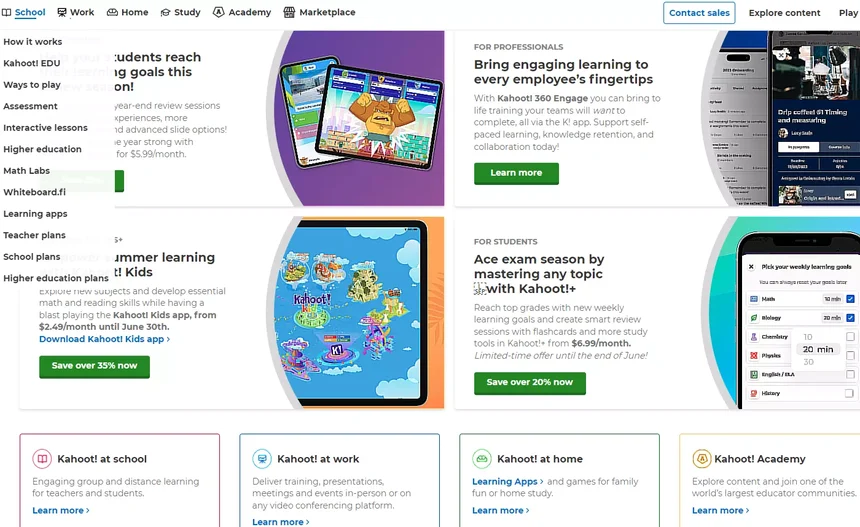
Founded: 2012
Number of employees: More than 1,000
Revenue: $169 million for fiscal year 2022 (53% YoY growth)
What does Kahoot do?
Kahoot offers a game-based learning platform. This approach makes creating, sharing, and playing trivia quizzes and other learning games more engaging — and doable in minutes. Besides schools and classrooms, you can also use it for professional training.
Other SaaS vendors like Kahoot include LearnDash, Moodle, and Mighty Networks.
90. Amplify
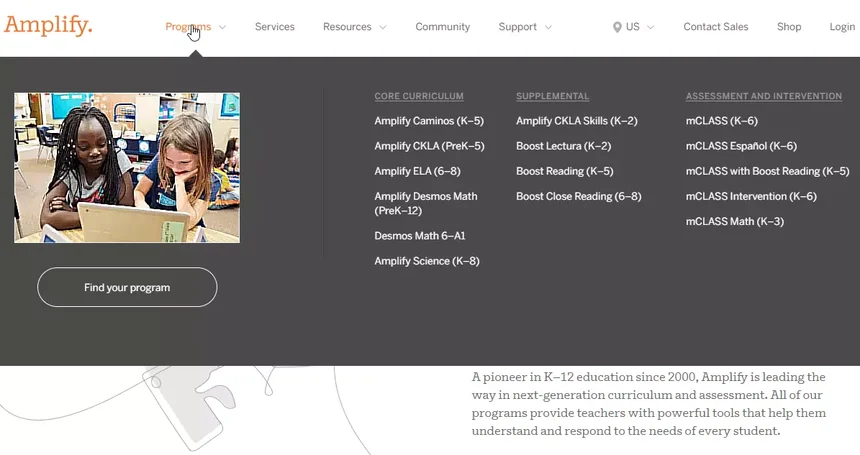
Founded: 2000
Number of employees: More than 2,200
Revenue: $125 million in 2018
What does Amplify do?
The US-based EdTech platform creates K-12 curricula and assessments for educators across the US. Amplify also includes intervention programs that can be tailored, in collaboration with teachers, to help specific learners.
For university-level education technology tools, check out 2U.
91. LearnWorlds

Founded: 2014
Number of employees: 51-200
Revenue: No public data available
What does LearnWorlds do?
LearnWorlds is an online course creation, selling, and learning platform for personal and professional users. It combines a learning management system (LMS), social media networking, and gaming capabilities to deliver a dynamic, engaging online course platform.
LearnWorlds alternatives include Teachable, Podia, Kajabi, and Thinkific.
92. SkillSoft
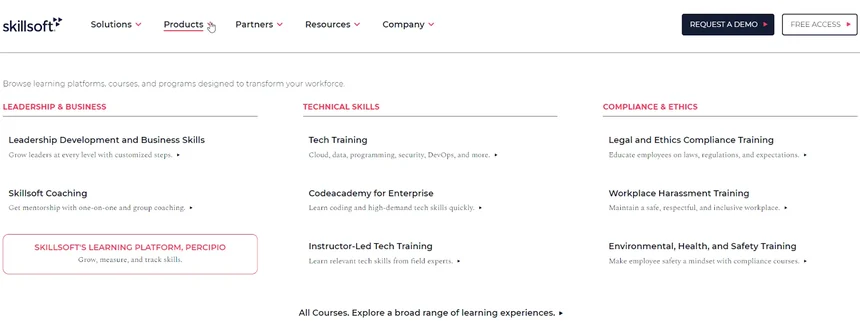
Founded: 2014
Number of employees: 51-200
Revenue: No public data available
What does SkillSoft do?
SkillSoft combines employee development, learning management systems, and educational content creation in one platform. From learning public speaking to coding, users can use the platform to learn new skills or upskill their existing competencies.
BetterUp, CoachHub, Udemy, Coursera, CuriosityStream, and EdX are all SaaS platforms that offer similar services to SkillSoft.
93. Anthology
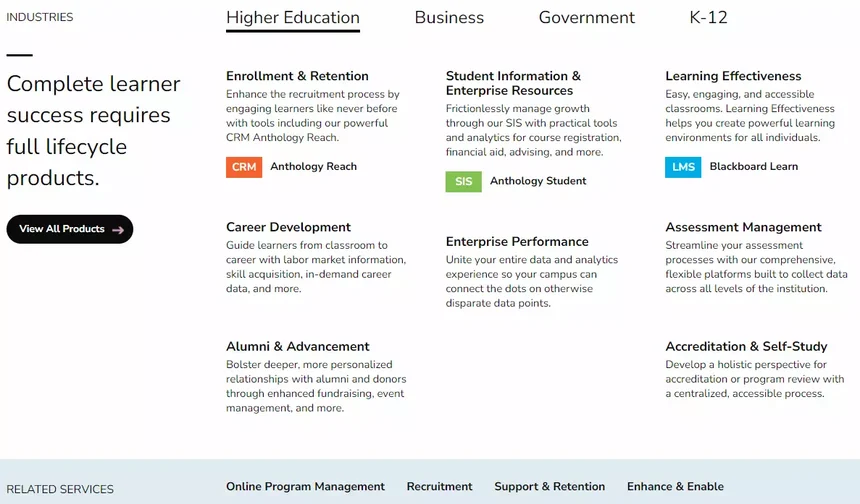
Founded: 1994
Number of employees: 500-1,000
Revenue: No public data available
What does Anthology do?
The Anthology educational technology platform is a combination of three solutions; Blackboard, iModules, Campus Management, and Campus Labs. Together, they deliver dynamic learning experiences via mobile LMS and other platforms.
Ecommerce SaaS Companies
You’ll find a bunch of household names in this sector, including e-commerce giants like Shopify and WooCommerce. Yet here are a few other noteworthy ecommerce SaaS brands:
94. BigCommerce
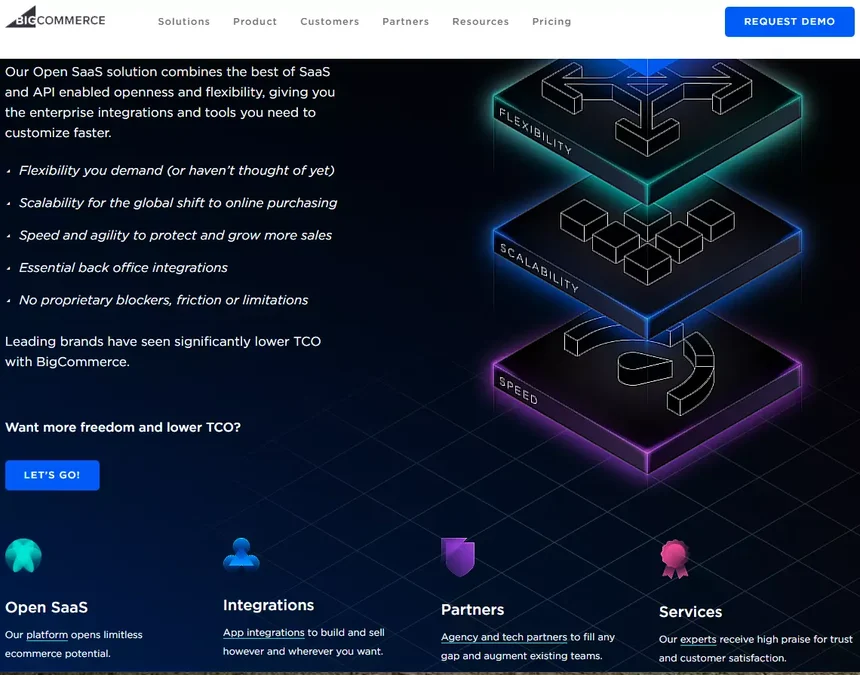
Founded: 2009
Number of employees: More than 1,300
Revenue: $279.1 million for fiscal year 2022 (a 27% YoY increase)
What does BigCommerce do?
BigCommerce is one of the most popular and biggest ecommerce platforms today. Like Shopify, WooCommerce, and Magento, BigCommerce delivers a modern platform to launch, secure, and scale your online business or store. Yet it is unique in that it goes beyond storefront design and payment processing to cross-border fulfillment and B2B commerce.
95. Volusion

Founded: 1999
Number of employees: 100-500
Revenue: Raised $55 million in 2015
What does Volusion do?
Volusion delivers an all-in-one ecommerce platform for businesses of all sizes and different industries. It provides a suite of tools, technology, templates, and marketing solutions for launching an online business and growing it.
96. Matternet

Founded: 2011
Number of employees: 51-200
Revenue: Raised $40 million Series B funding in June 2022
What does Matternet do?
An industry pioneer in commercial drone deliveries, Matternet aims to make on-demand deliveries as efficient, cheap, and eco-friendly as possible. Currently, Matternet is being used for on-demand patient care delivery of diagnostic samples in Zurich.
97. Deliverr
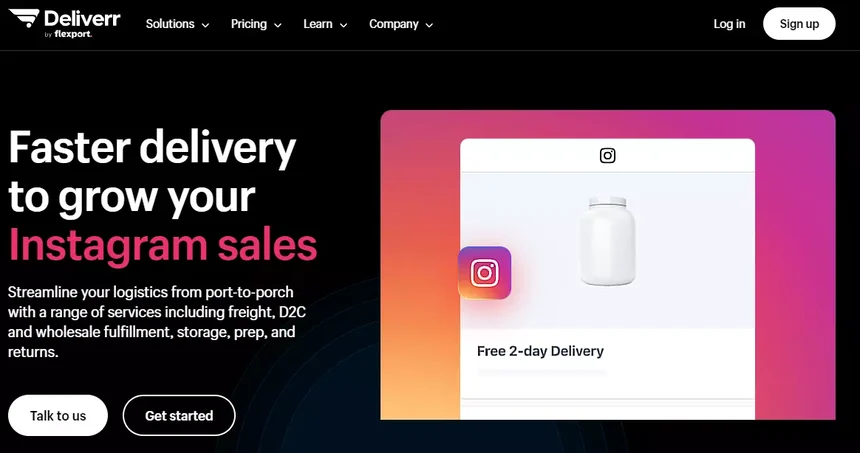
Founded: 2017
Number of employees: 100-500
Revenue: Raised $25 million Series E funding in December 2021
What does Deliverr do?
With Deliverr Inc, you get a suite of ecommerce delivery fulfillment solutions in one platform regardless of your business size. The platform includes wholesale fulfillment, freight, and direct-to-customer (D2C) tools as well as prep, storage, and returns management.
98. OneView Commerce
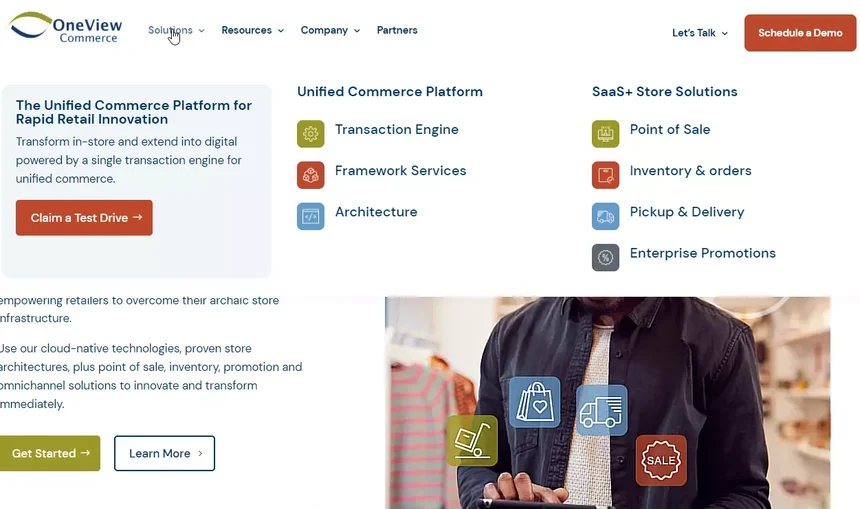
Founded: 2010
Number of employees: 50-200
Revenue: No public data available
What does OneView Commerce do?
Most retail purchases are still made in-store rather than online. However, proactive retailers are looking for ways to improve customer experiences in-store to keep up with the digital age.
OneView Commerce provides retailers with tools to help them do that, including point-of-sale systems, promotions, inventory, and omnichannel solutions.
Over To You
There are more than 30,000 SaaS companies operating in the world today. The ones we’ve highlighted here are just a drop in the bucket. Yet, each of these SaaS providers stands out for its innovation, profitability, scalability, etc.
We hope this list of the top SaaS companies in the world today inspires you to launch, scale, and profit from your venture as well.
Just, one more thing.
Set Profitable SaaS Pricing, Control Cloud Costs, And Protect Your Margins With CloudZero
If you are in SaaS and wondering how to stop reporting weaker margins, reduce your cloud costs, and optimize your cost of goods sold (COGS), check out CloudZero.
CloudZero empowers you to:
- View, understand, and act on granular cloud cost insights. Rather than seeing just totals and averages, you’ll see cost per customer, per team, per environment, per service, per project, per software feature, etc.
- Get the real picture without endless tagging. View the costs of tagged, untagged, and untaggable resources as well as costs of specific tenants in multi-tenant environments.
- Bring together multi-cloud costs in one platform. CloudZero ingests cost data from AWS, Azure, GCP, Kubernetes, Databricks, Snowflake, New Relic, Datadog, MongoDB, and more.
- Get real-time cost anomaly detection and timely alerts via Slack, email, and other favorite channels.
- Enjoy fast, accurate, and reliable cost allocation, budgeting, and forecasting solutions for SaaS businesses — all in one place.
CloudZero is already helping innovative SaaS companies like Remitly, Malwarebytes, NinjaCat, and Drift (which saved $2.4 million in annual AWS spend).  to experience CloudZero for yourself.
to experience CloudZero for yourself.
